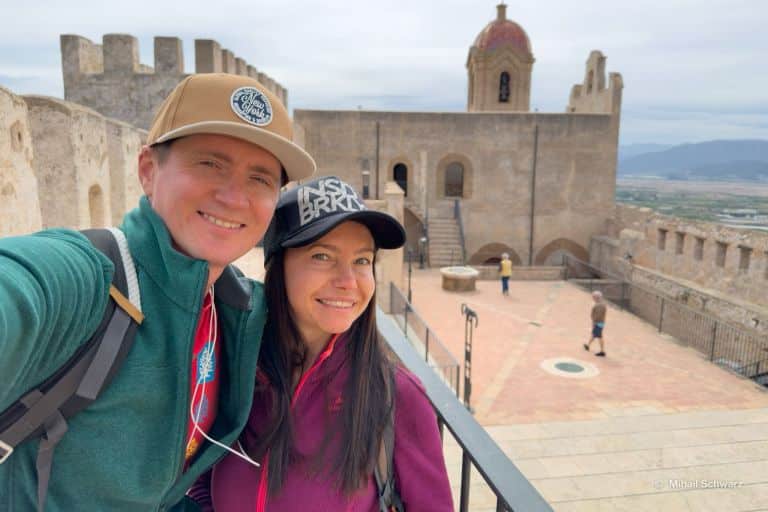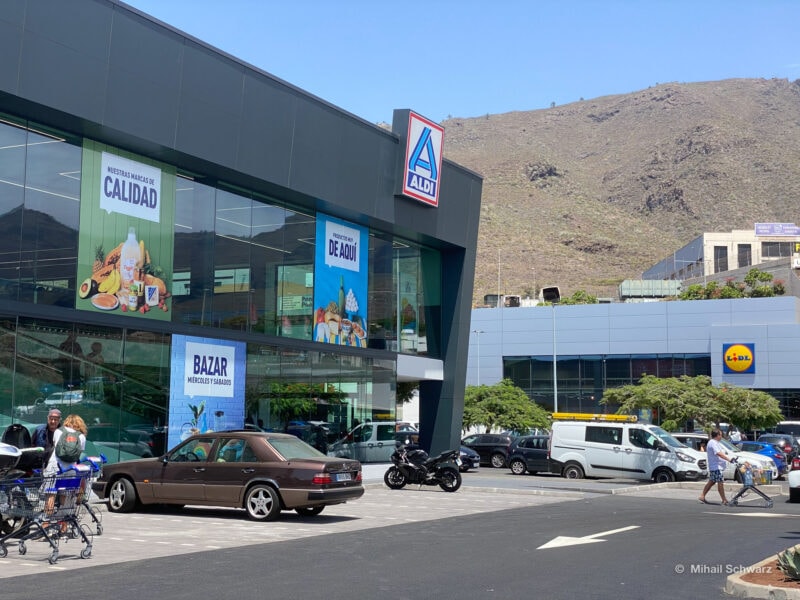
I strolled through the Mercadona supermarket with average Spanish prices. My report will give you the necessary information on how much cash to bring and how much you’ll spend on food during your vacation.
Vegetables and Fruits
Tomatoes cost around €2 per kilogram, and cherry tomatoes around €4. Cucumbers are a little over €2. Potatoes are approximately €1.5, and onions range from €1.2 to €2.2. An iceberg lettuce is €1.5. Canarian bananas are about €2.5.

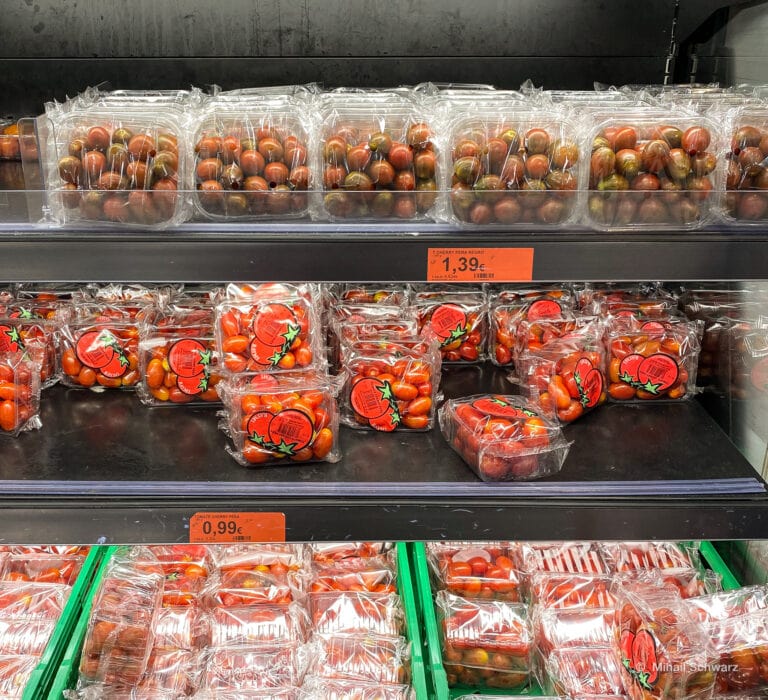
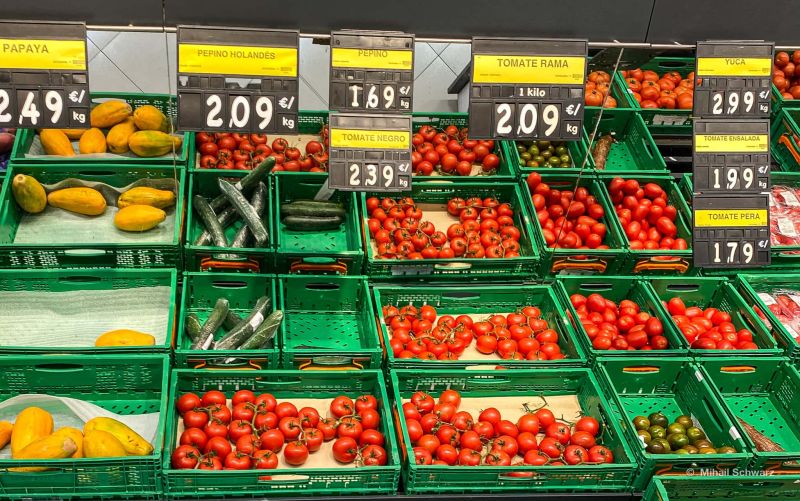
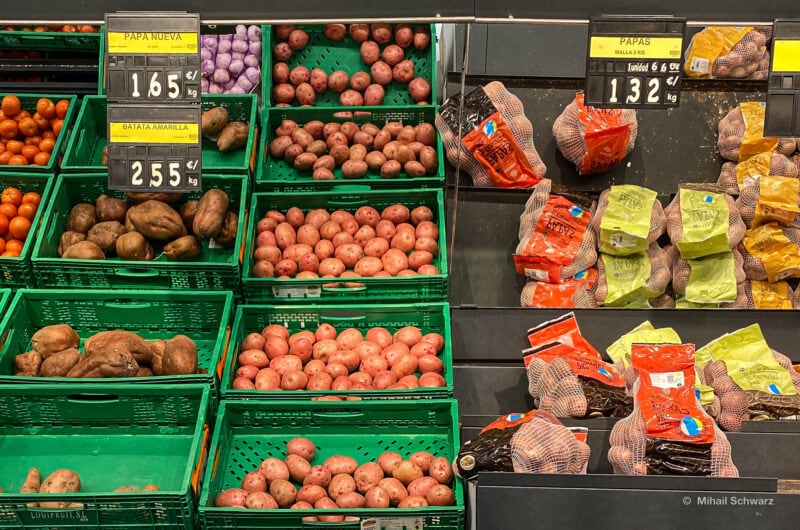
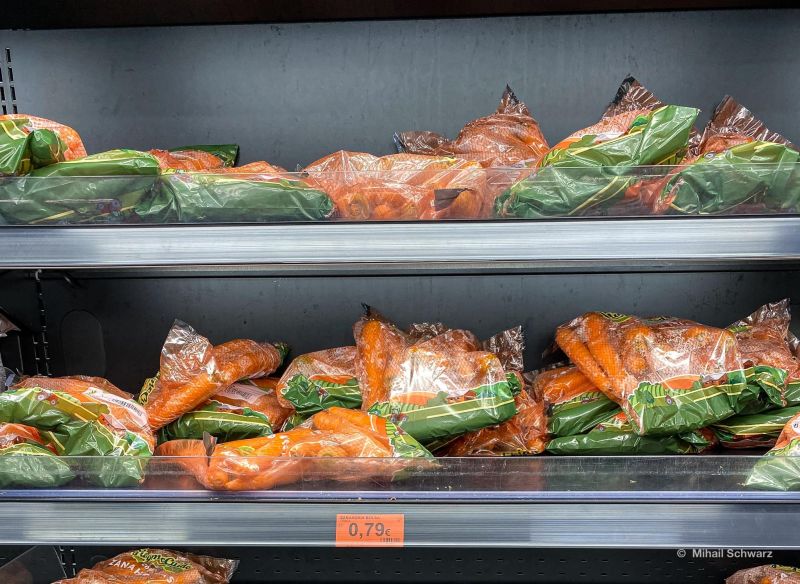
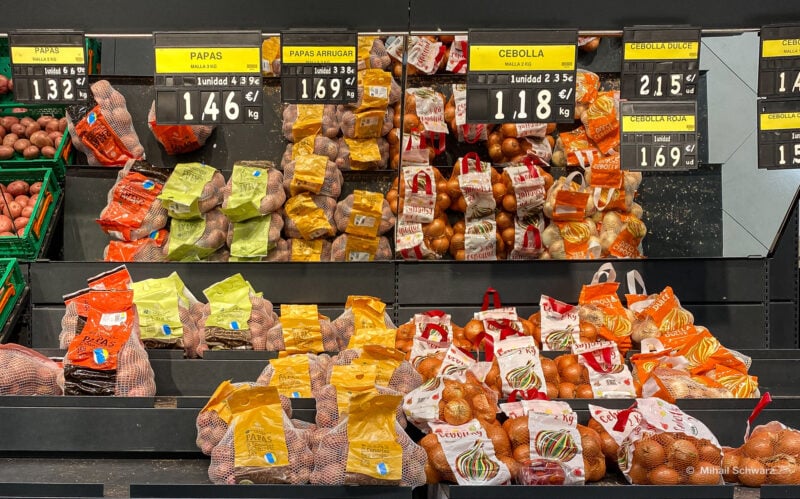
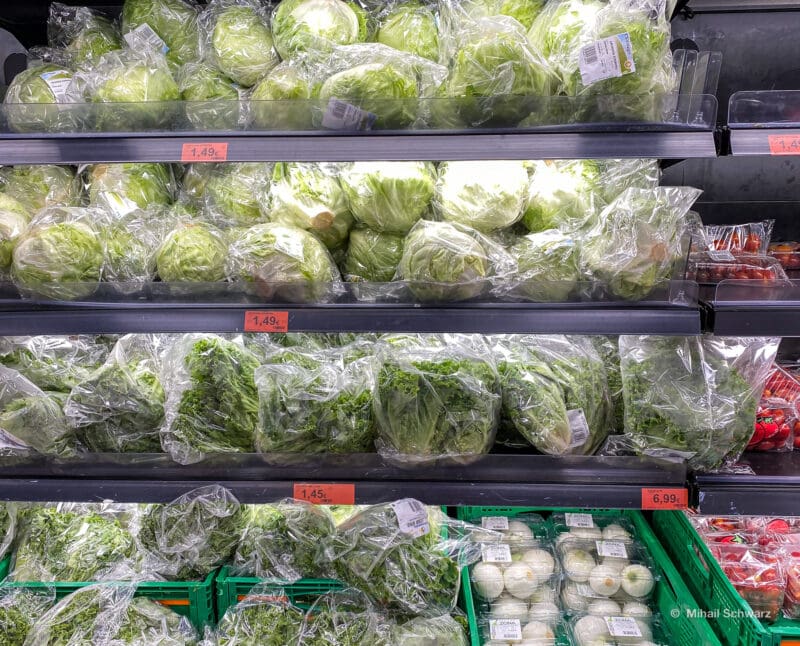
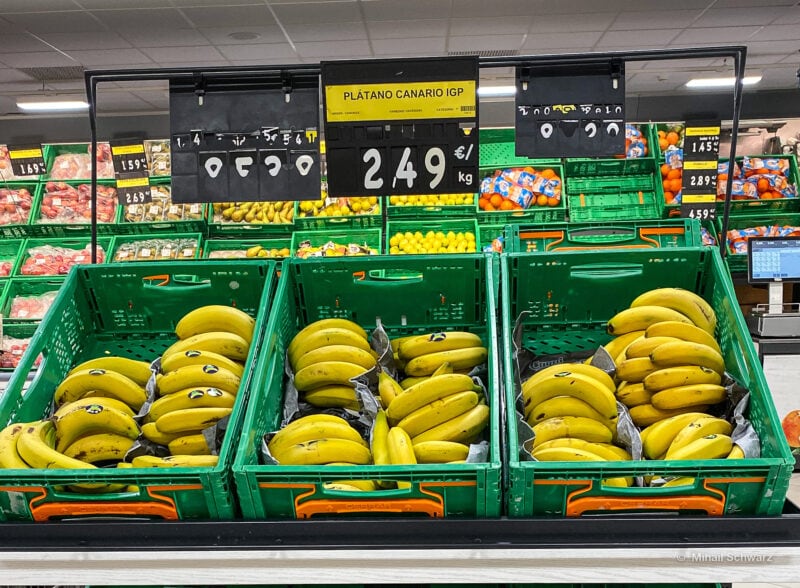
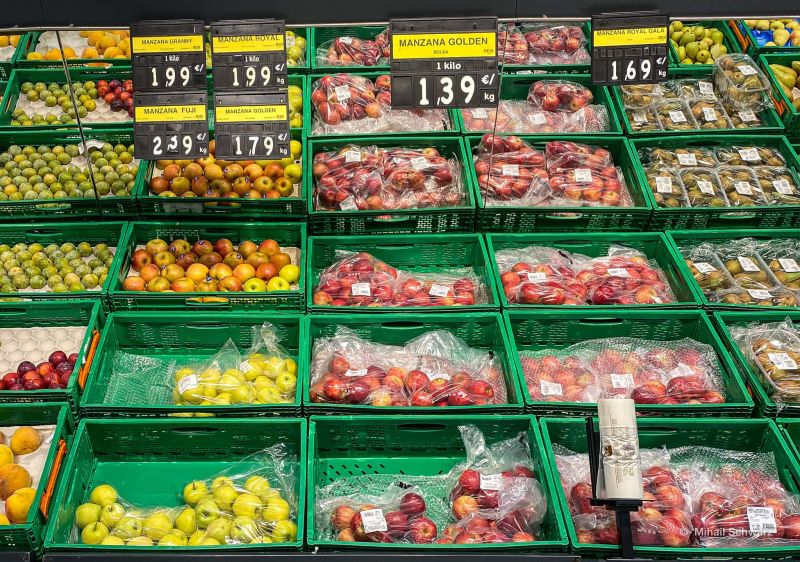
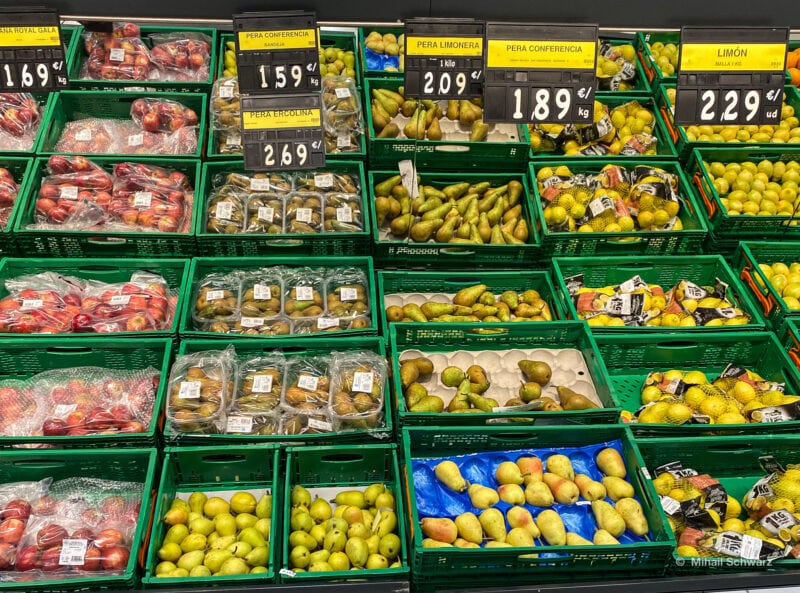

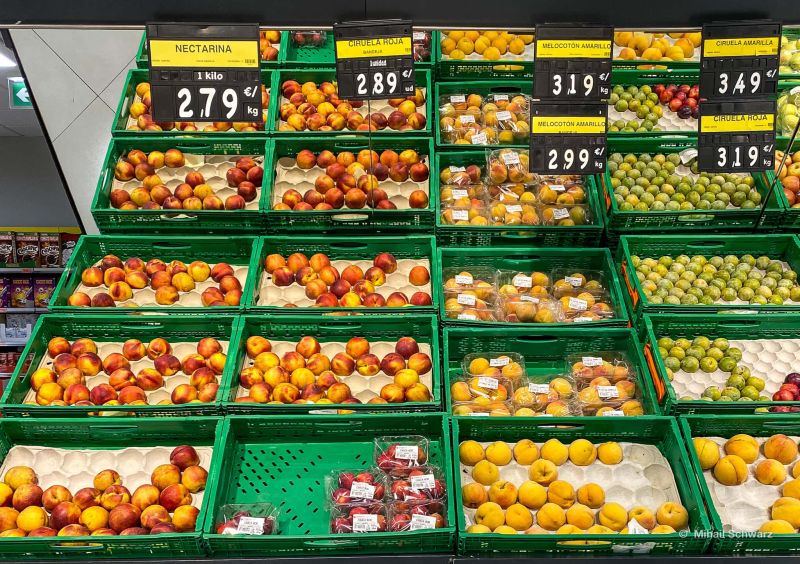

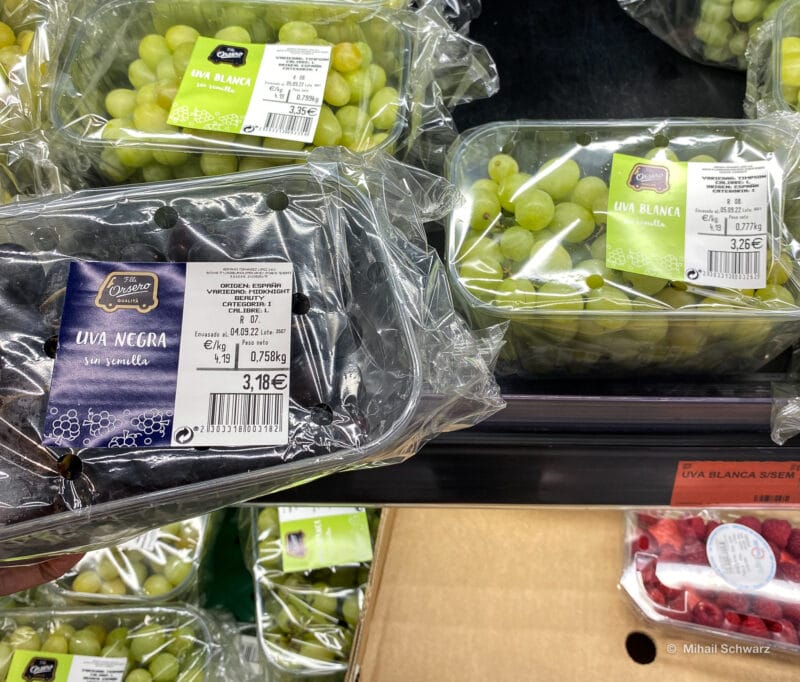
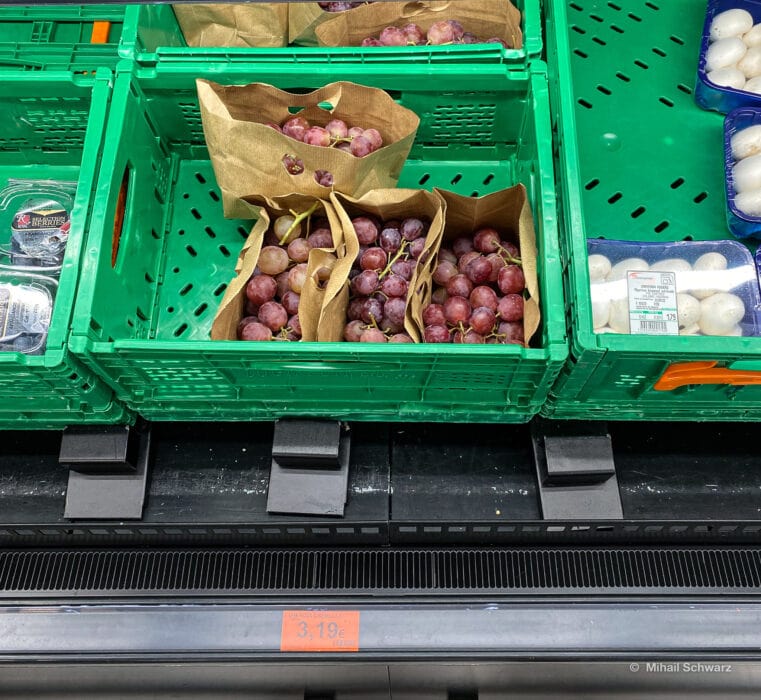
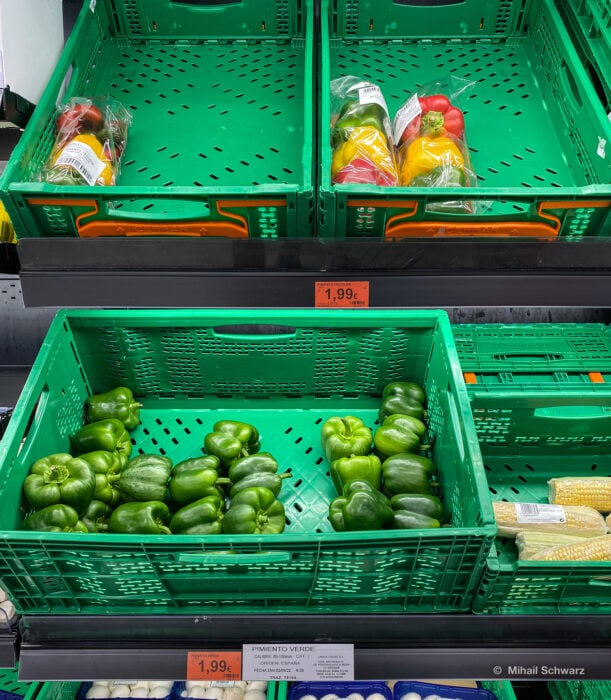
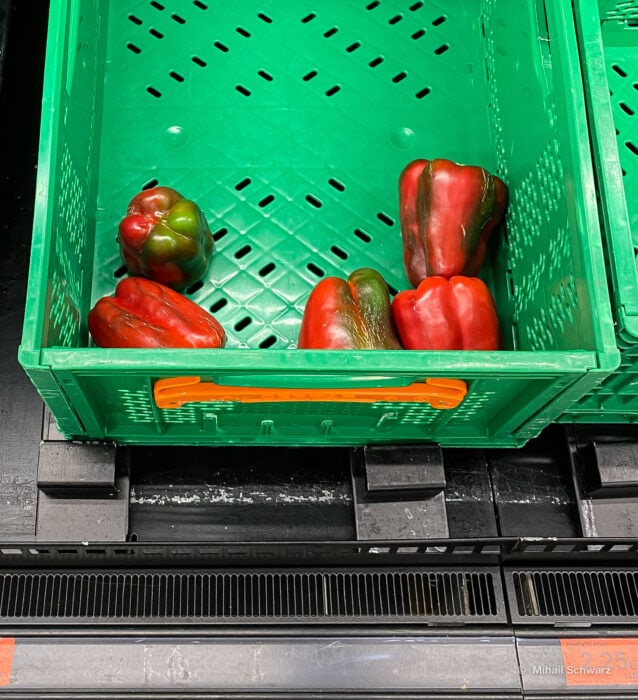
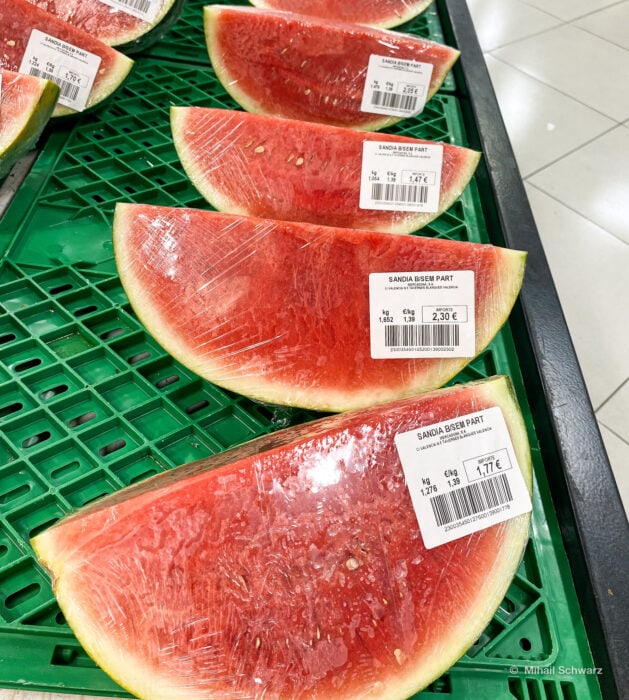
Prices for fruits and vegetables, as everywhere, fluctuate depending on the season.
Bread and Pastries
The bread selection in supermarkets is poor. They usually sell freshly-baked baguettes from frozen dough – utter garbage! Inedible the next day. Baguettes cost €0.5–1.5, depending on length. Large croissants are €0.8 each. Long-lasting loaves sell for €1.
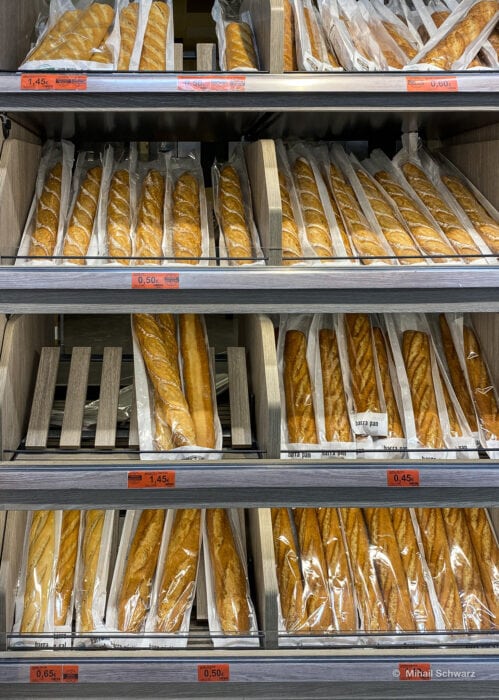
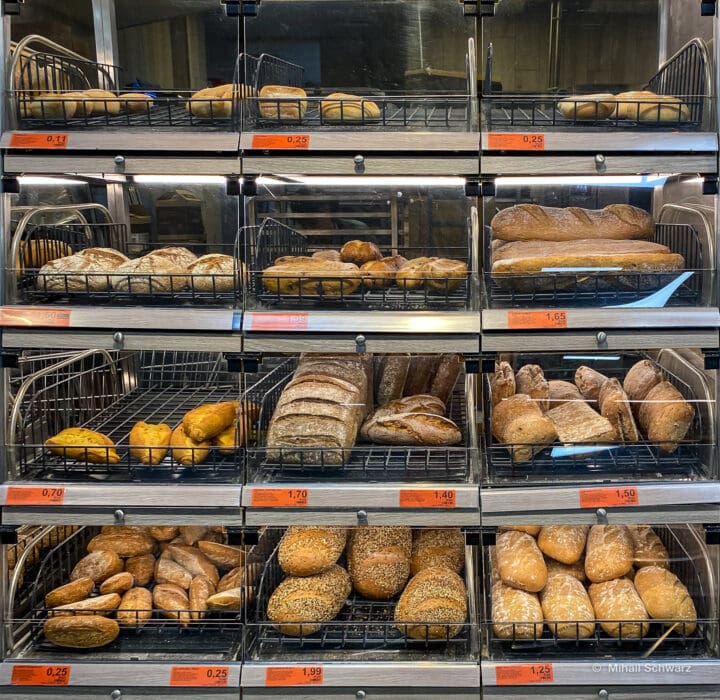
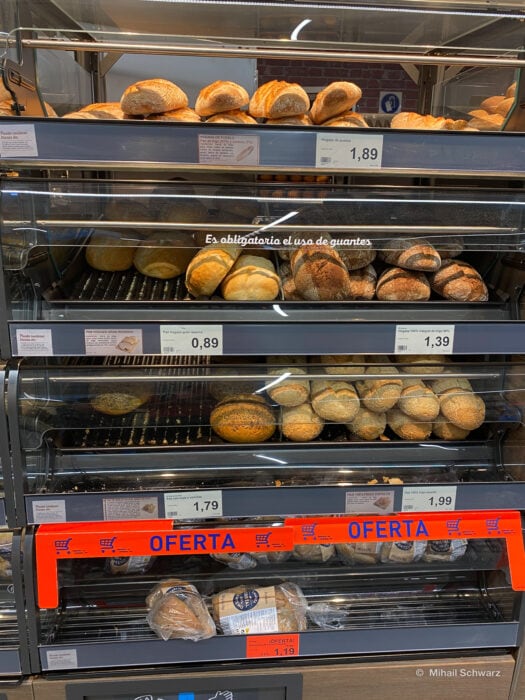
There are cookies to suit every taste, mostly made in Spain.
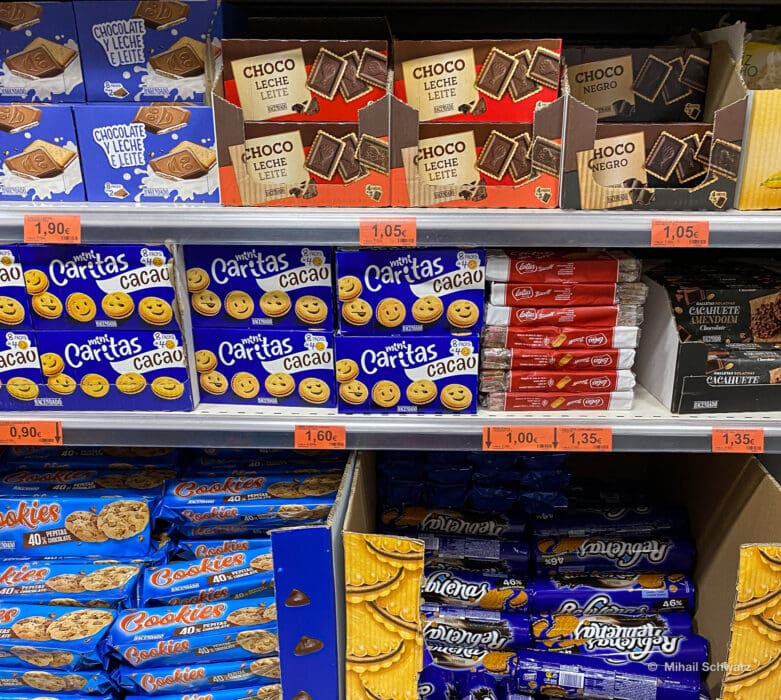
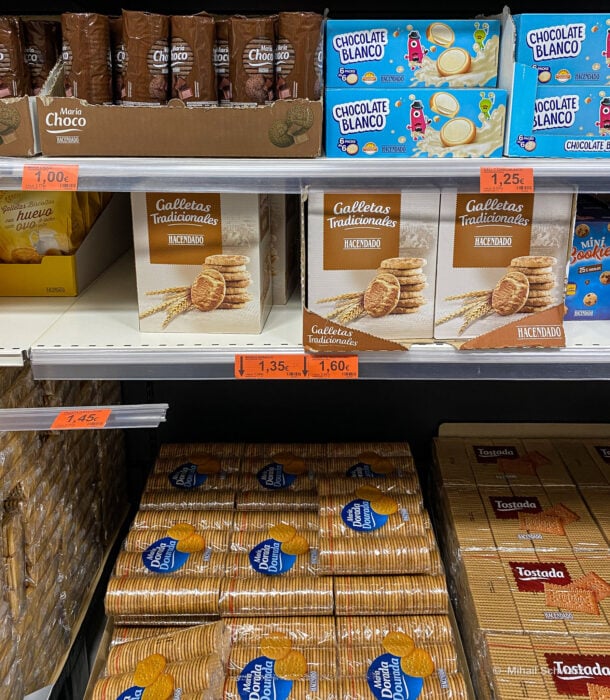
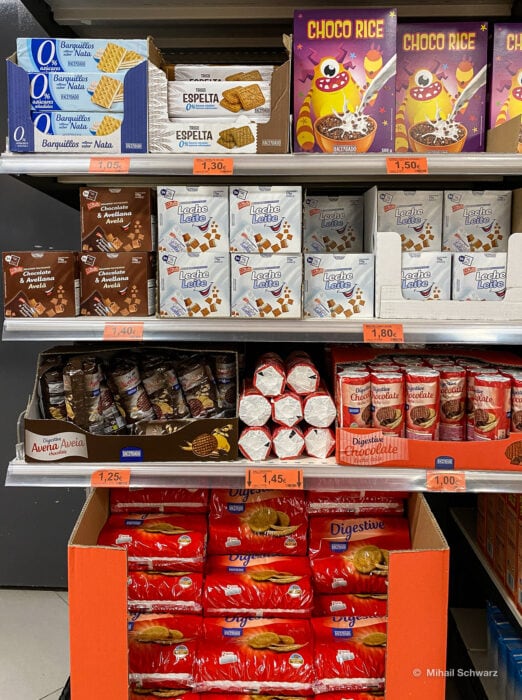
Chocolate Bars
They sell good chocolate bars, ranging from €1–3 per bar.
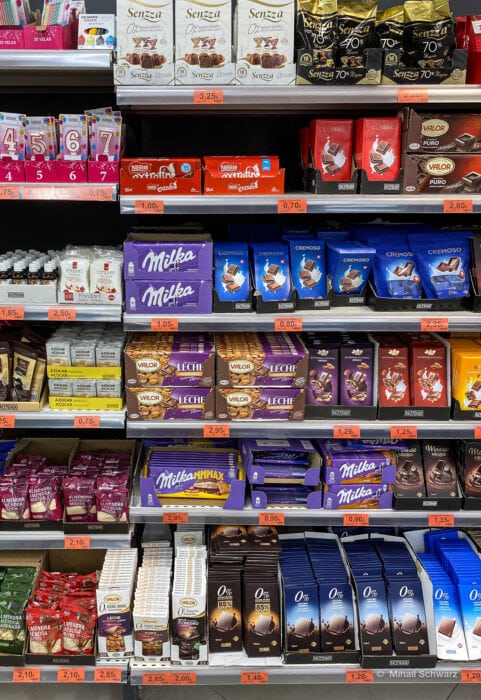
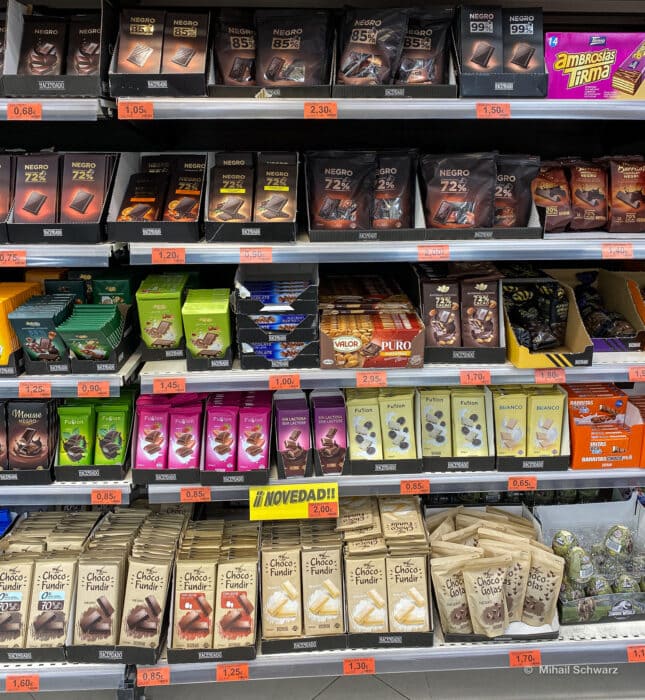
Soda and Water
Is soda expensive or not? I don’t know our prices. An aluminum 0.33L can costs around €0.25.
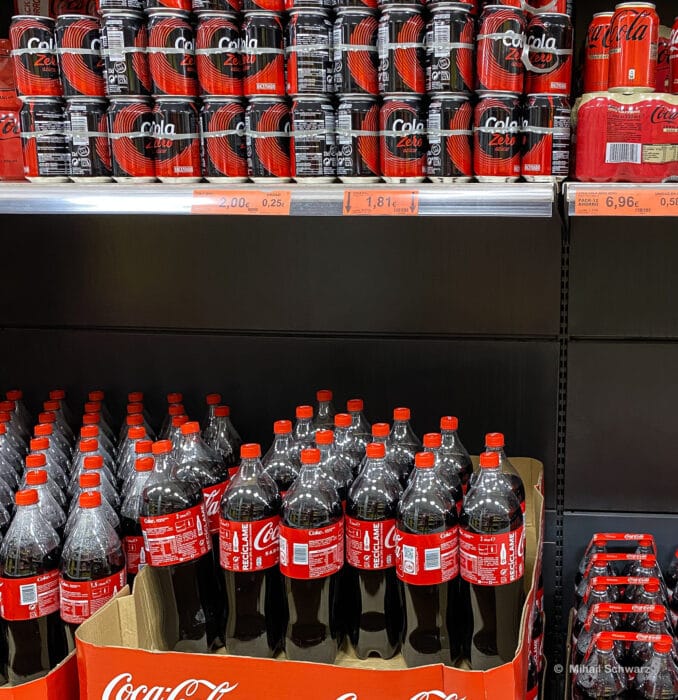
There are many varieties of bottled water. Price per liter ranges from 15 to 60 cents. The cheapest is sometimes worse-tasting than tap water and leaves scale in the kettle. I choose an inexpensive, slightly mineralized water with the funny name débil — it’s not a brand, but a water type.
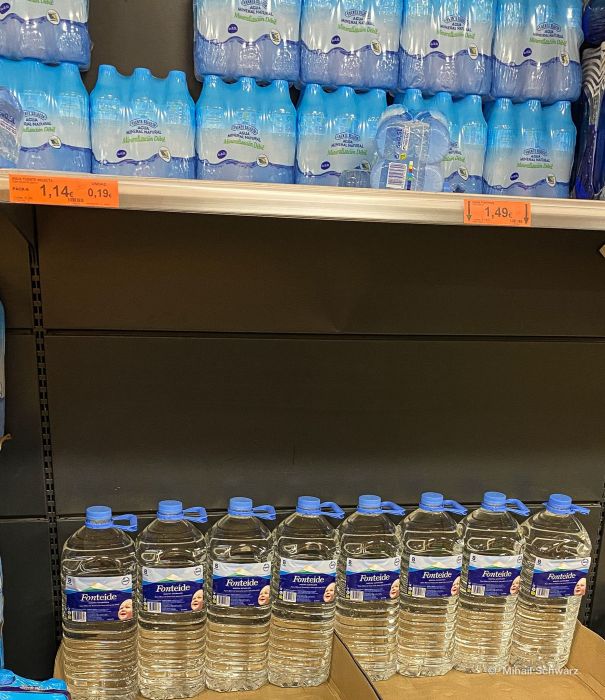
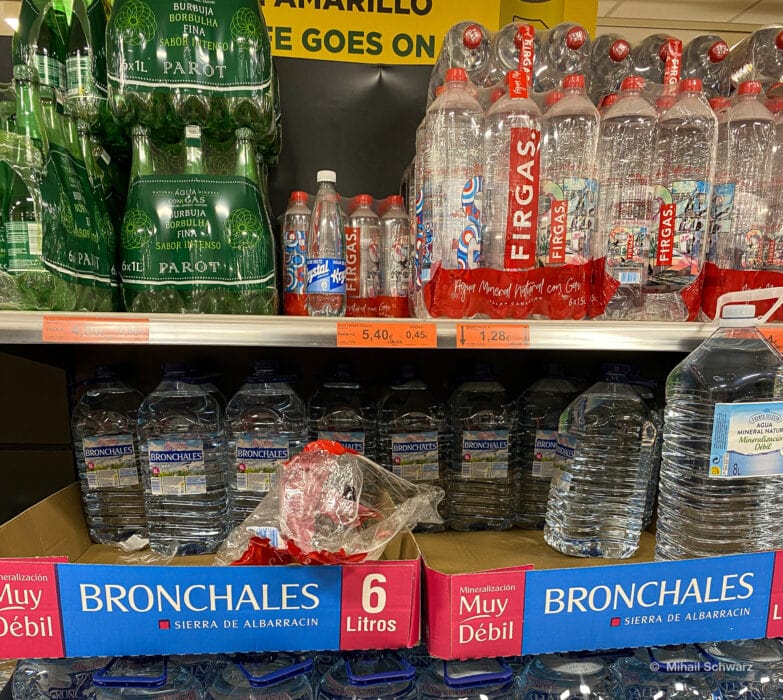
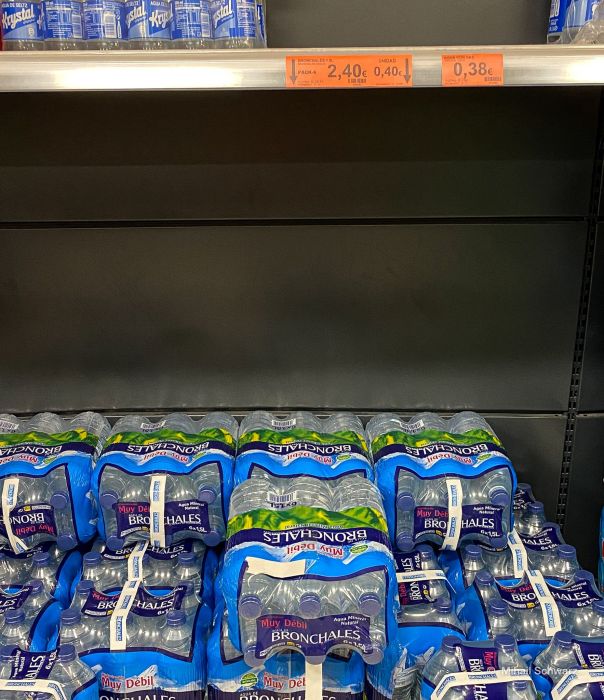
Sausages and Ham
Spain is in good shape when it comes to sausages — even the cheapest dry-cured ones are of very decent quality! I like to get the reddish dry-cured chorizo sausage by weight at €6–8 per kilogram.
There’s a countless variety of hams here. Prices range from €15 to €49. I wouldn’t recommend getting the pre-sliced vacuum packs. Get it freshly sliced instead.
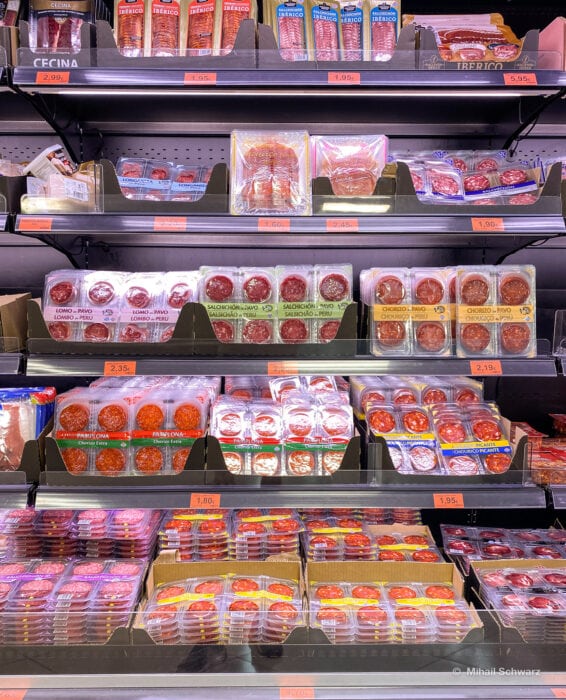
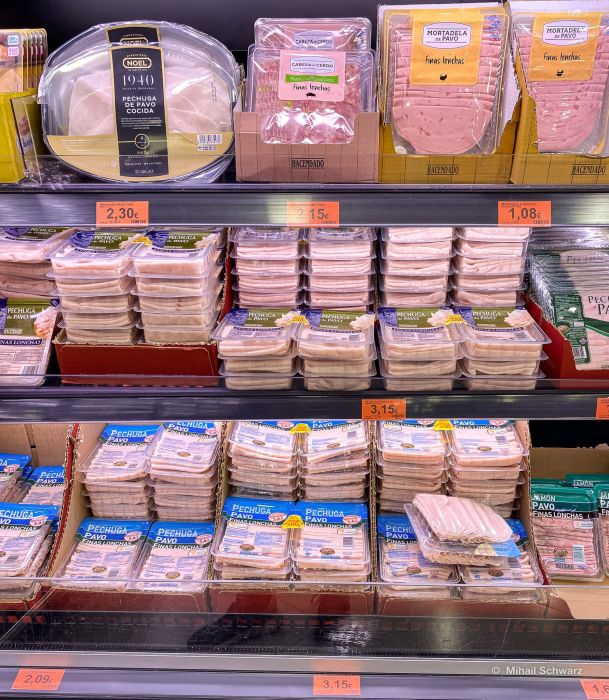
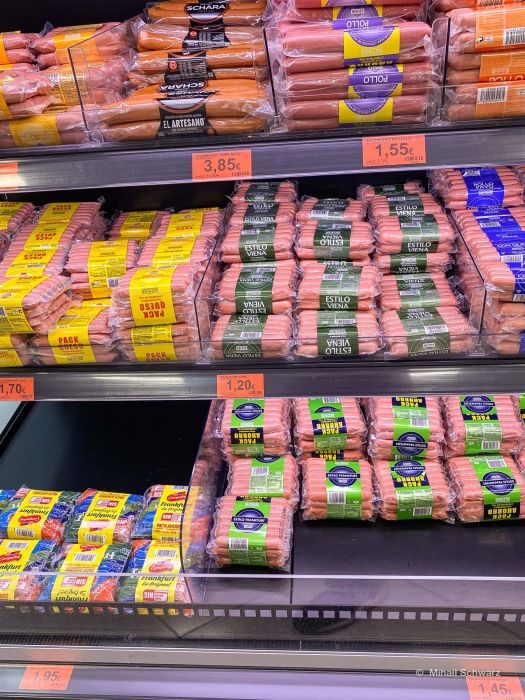
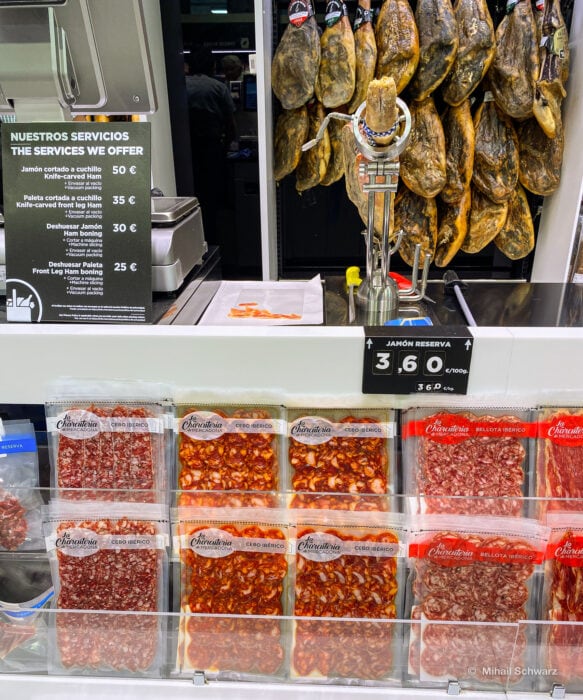

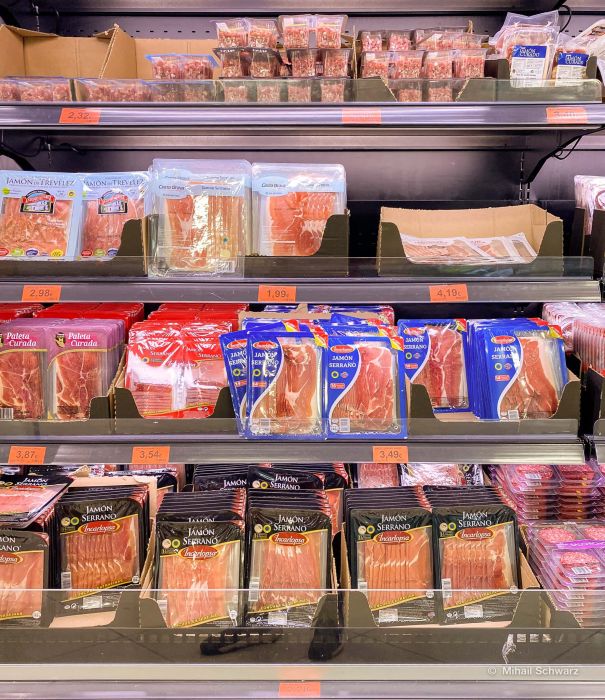
Meat
Spanish beef is available both lean and with marbling, priced at €12–€18 per kilogram.
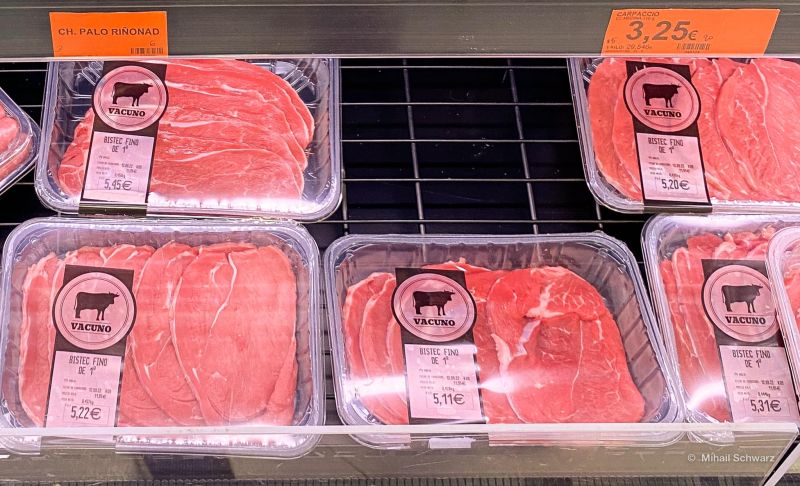
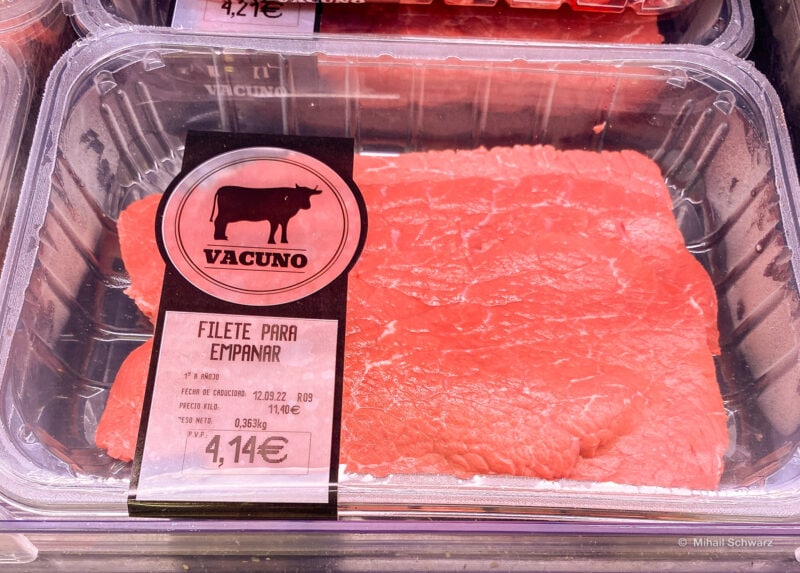
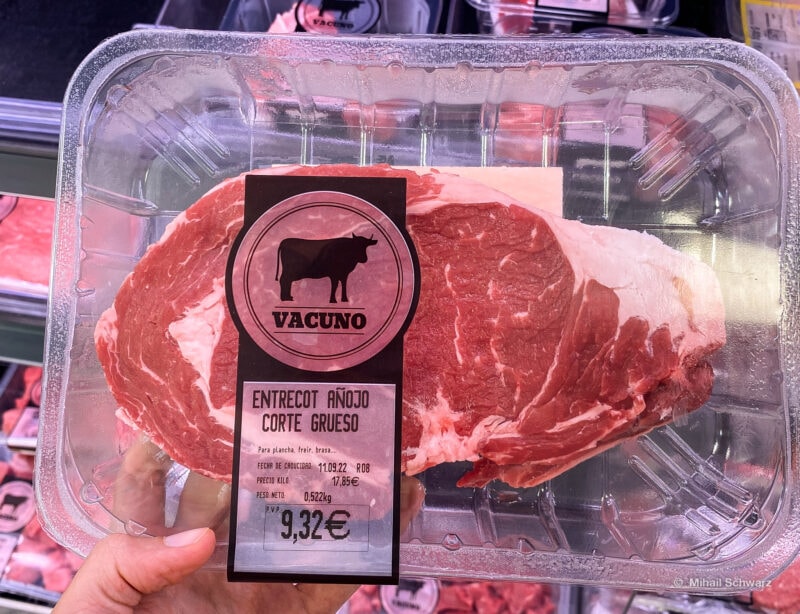
Pork sells for €5–€7 per kilogram.
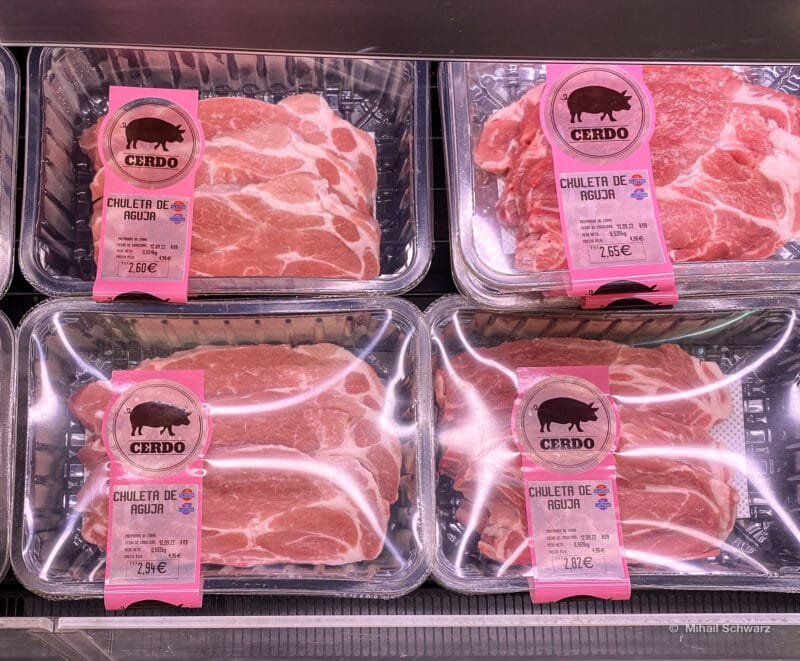
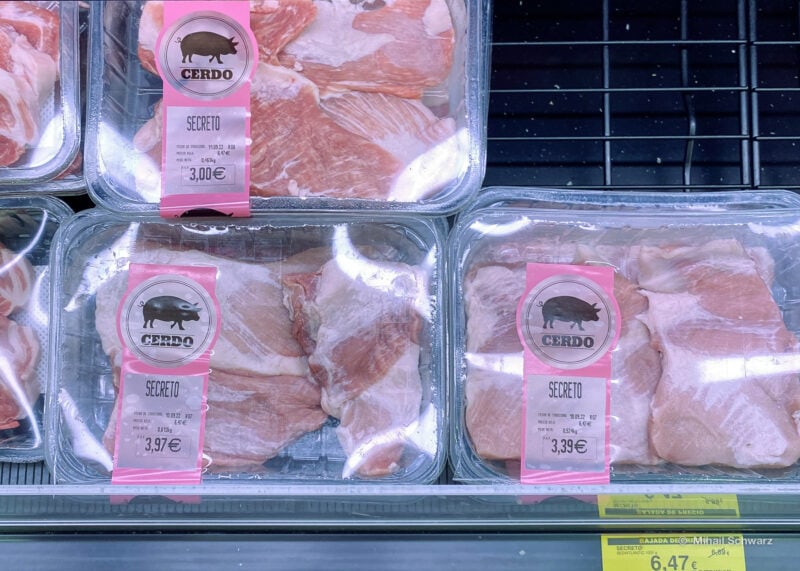
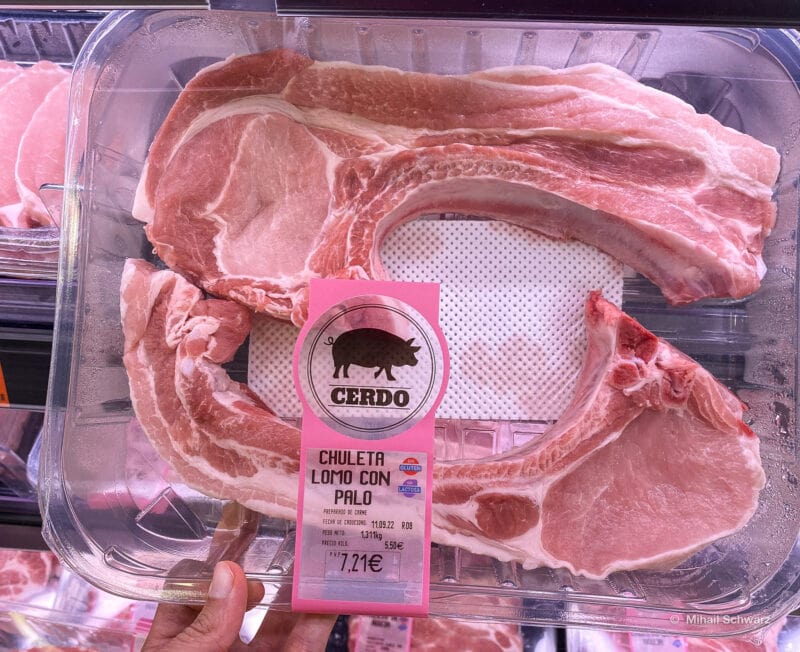
Chicken is sold whole or in parts.
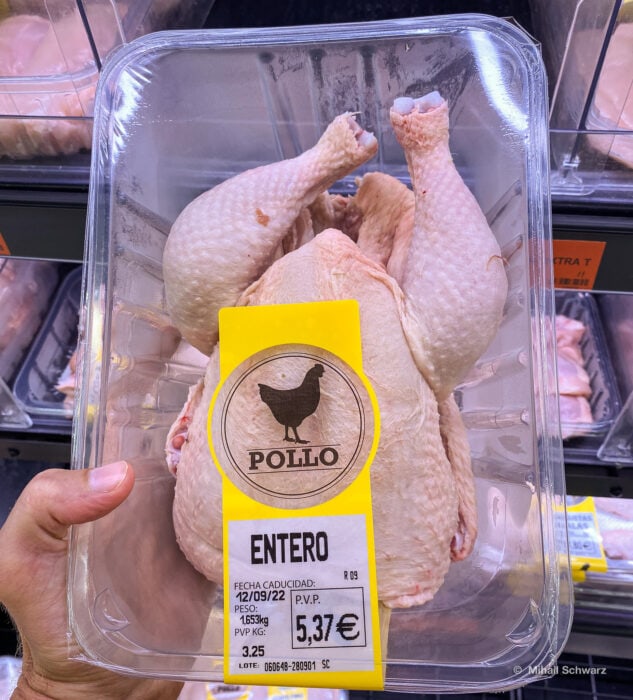
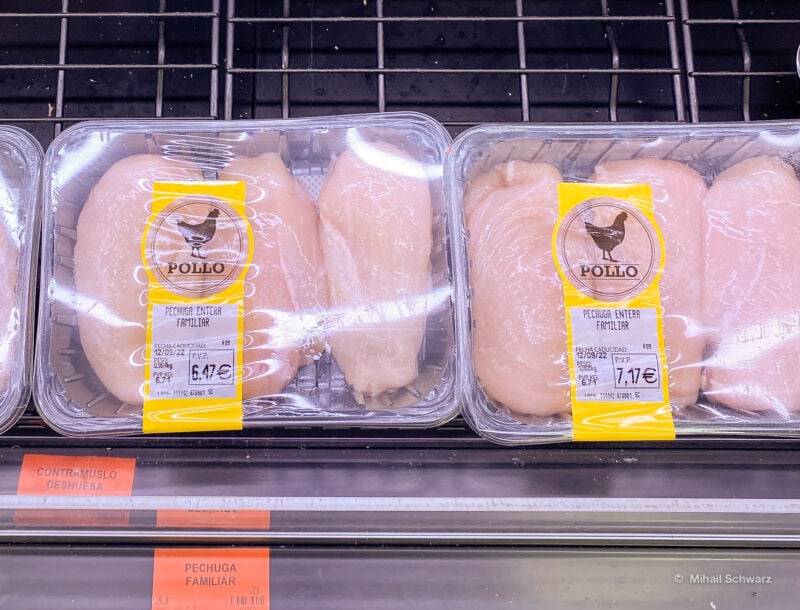


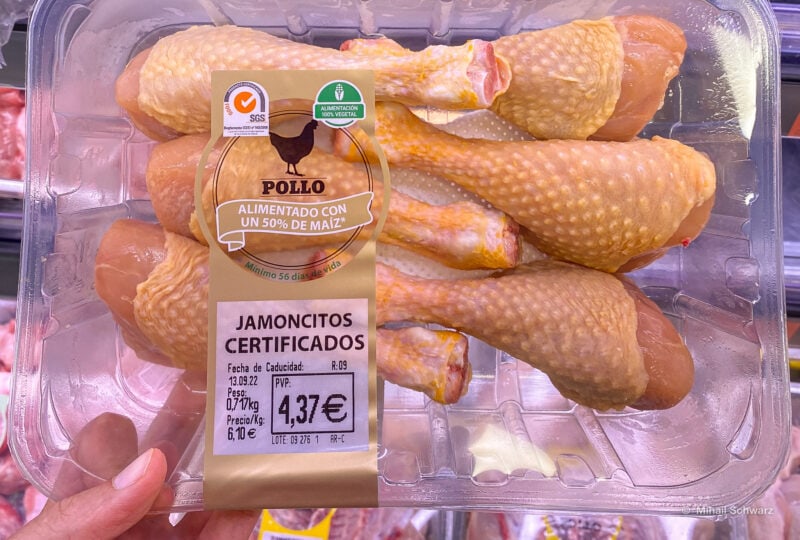
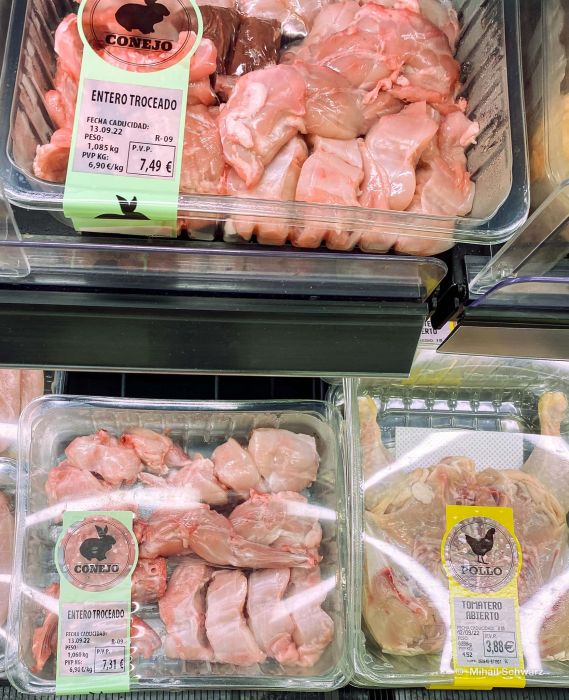
Fish
Almost all the fish in Mercadona is imported from Spain and other countries. Local catch is rare.
If desired, they can clean and fillet the fish for you. Take a paper number and wait your turn. Point to the fish you want, and they’ll lovingly prepare it. If needed, they’ll slice it into steaks or fillet it.
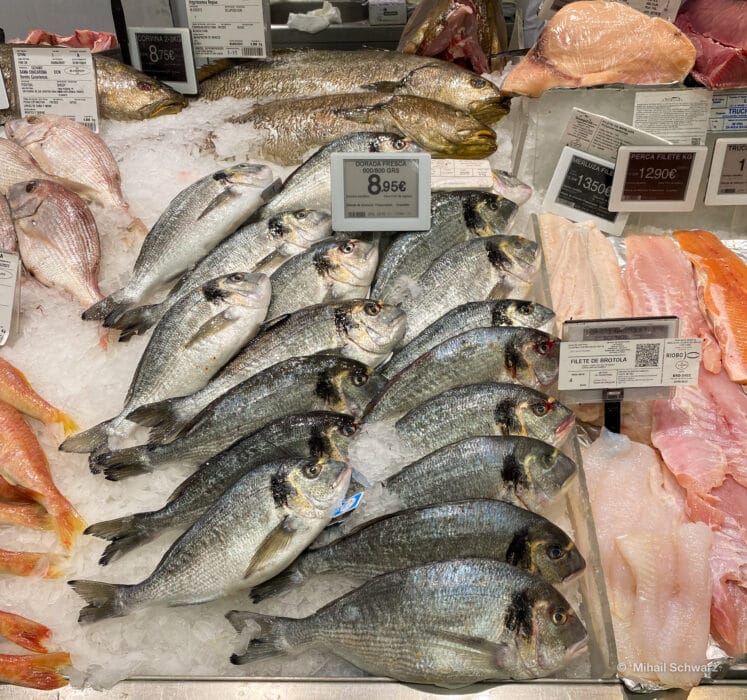
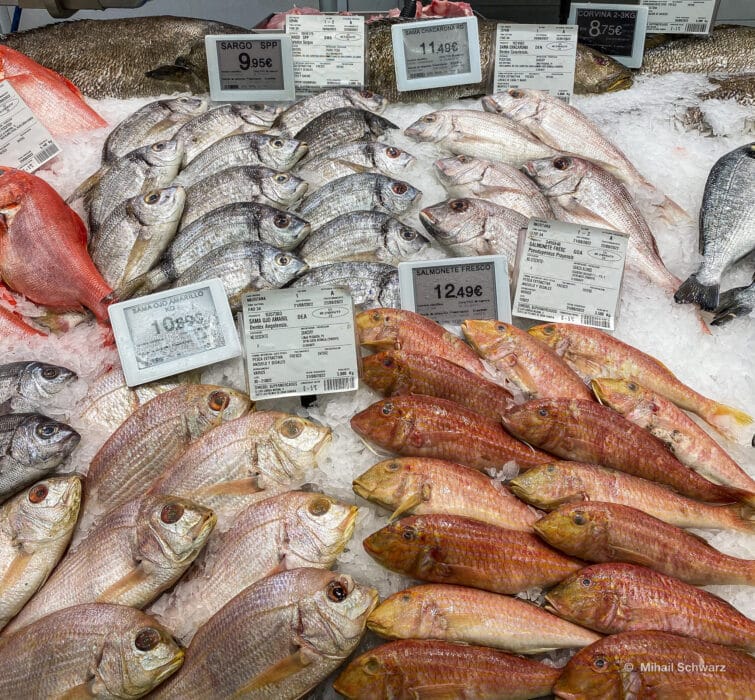
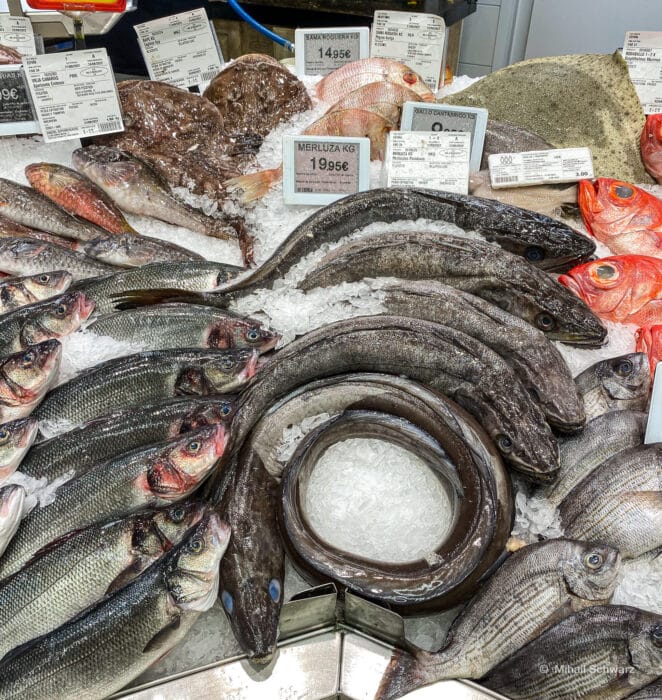

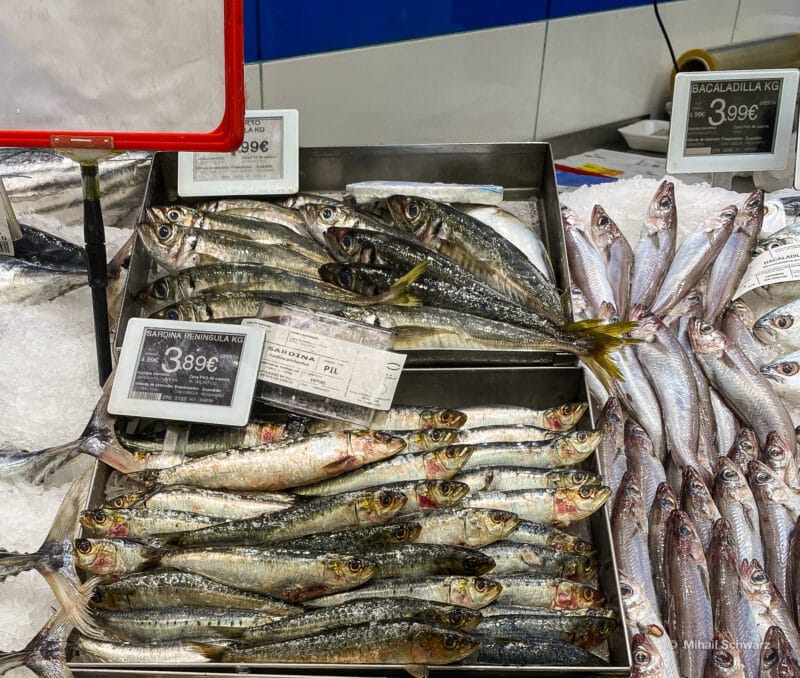

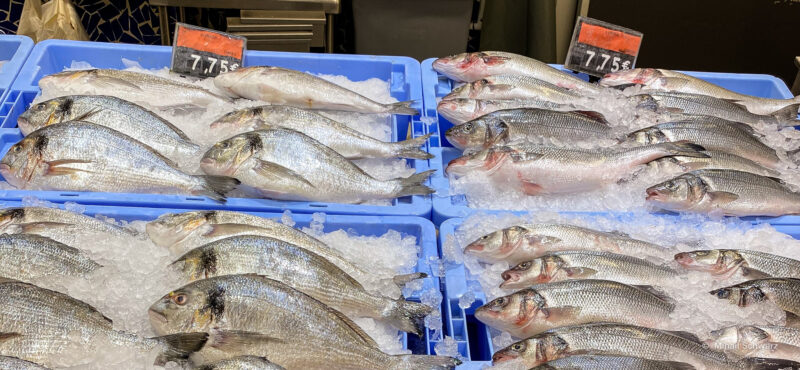
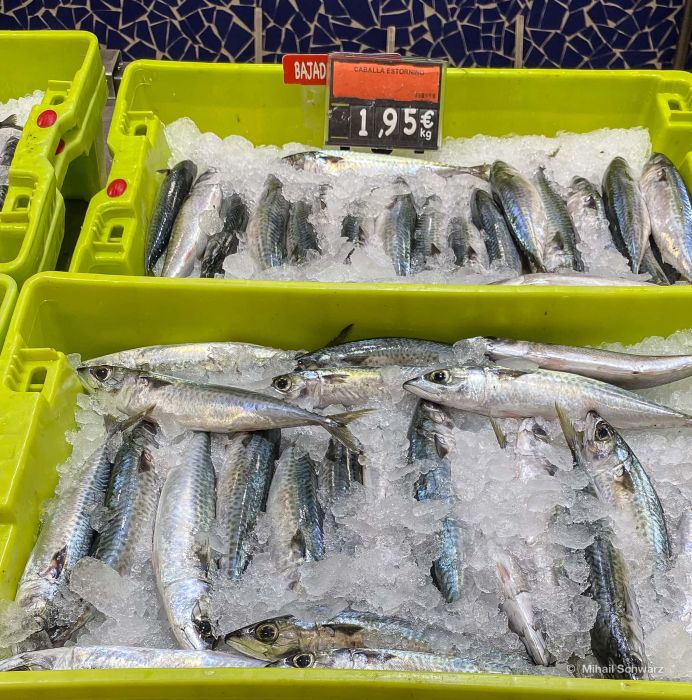
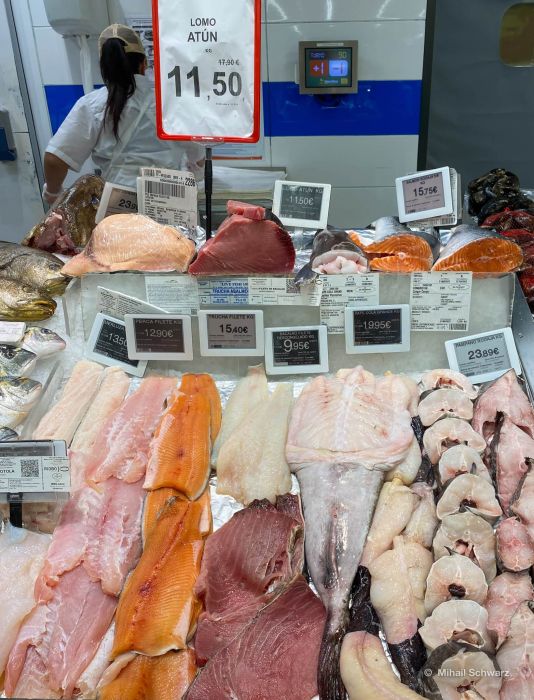
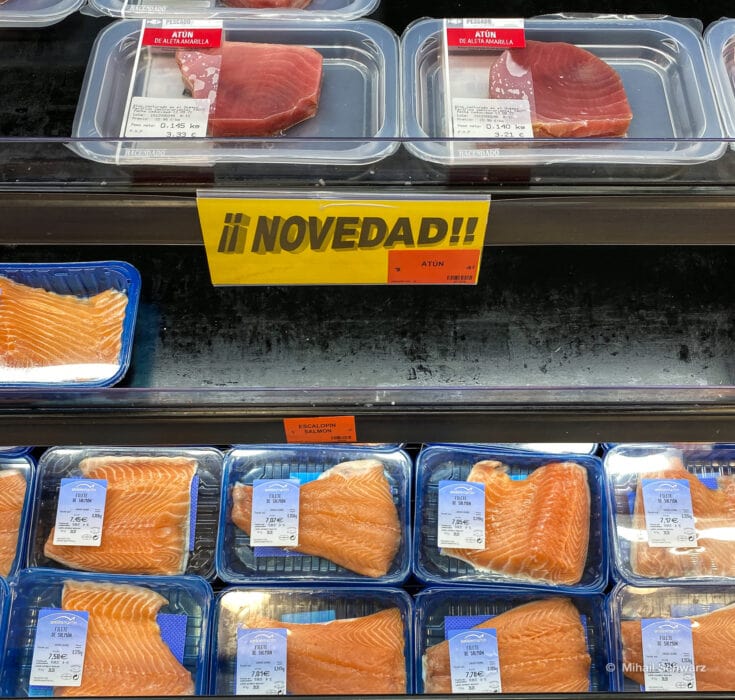
The stores have a large selection of super-fresh seafood: shrimp for €10/kg, mussels for €5/kg, squid from €6/kg.
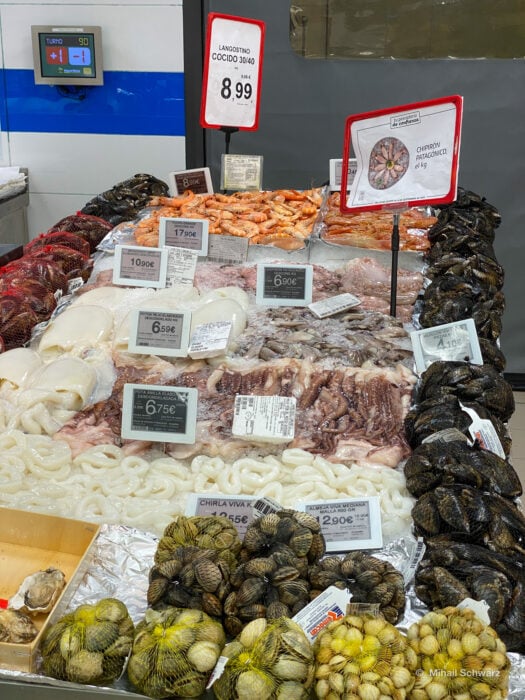
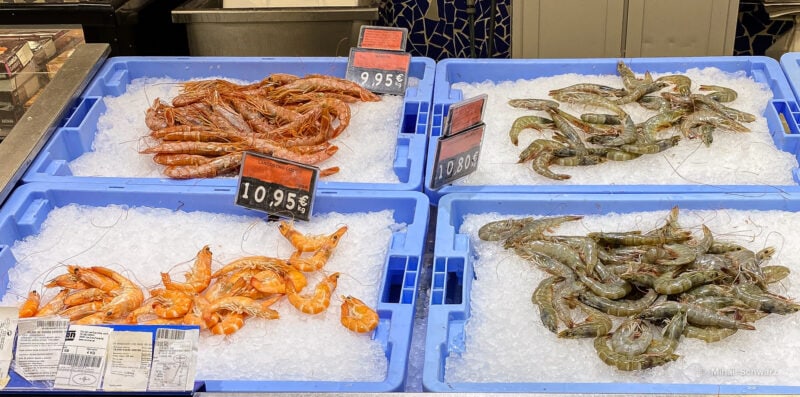
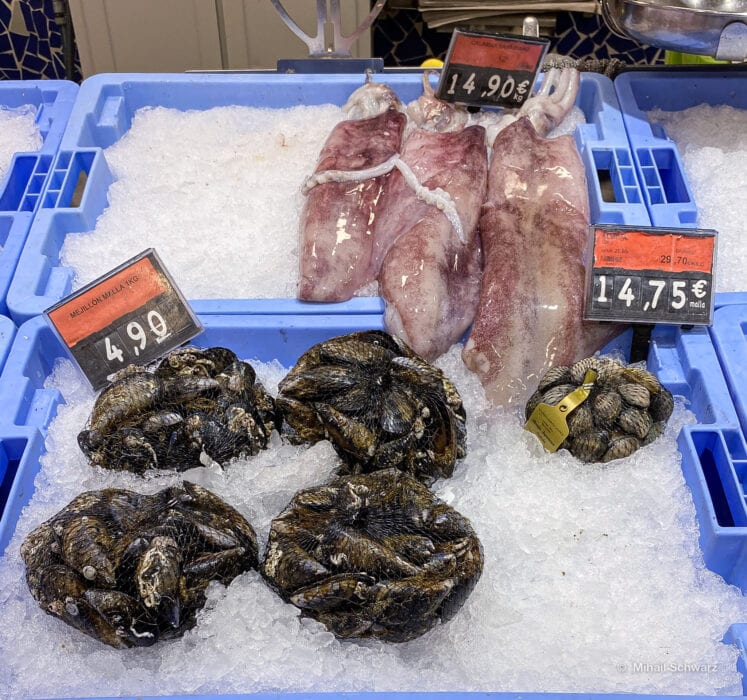
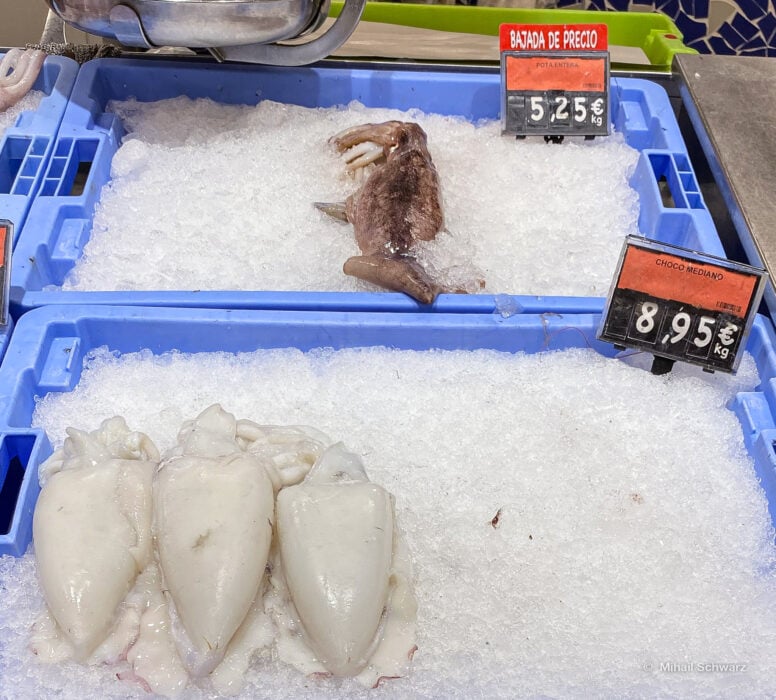
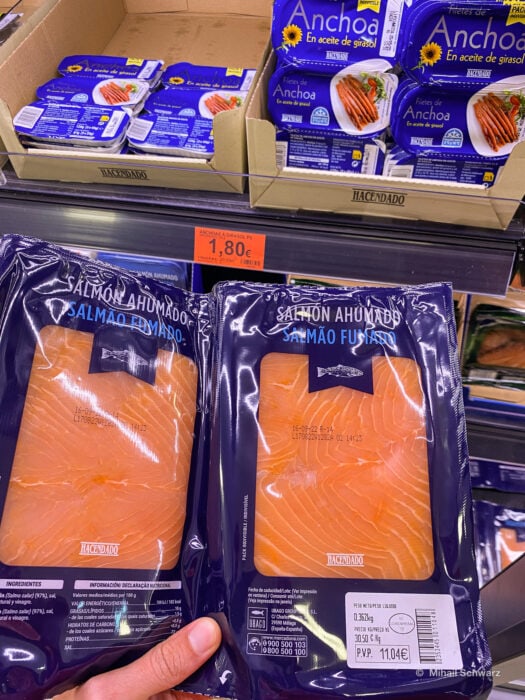
Canned fish starts from €1.5.
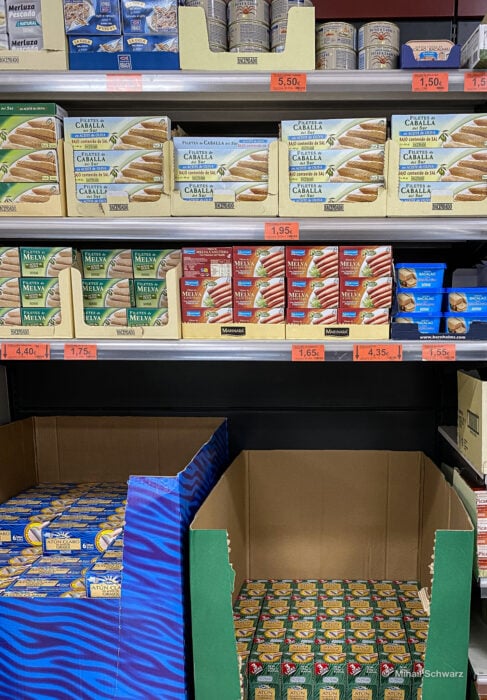
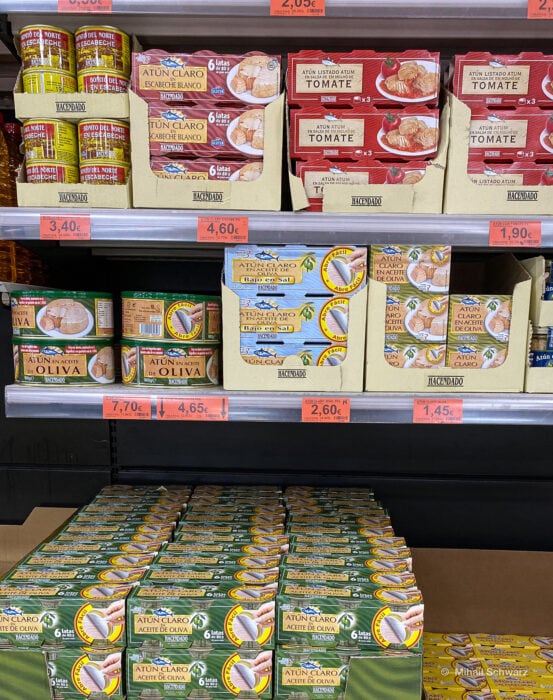
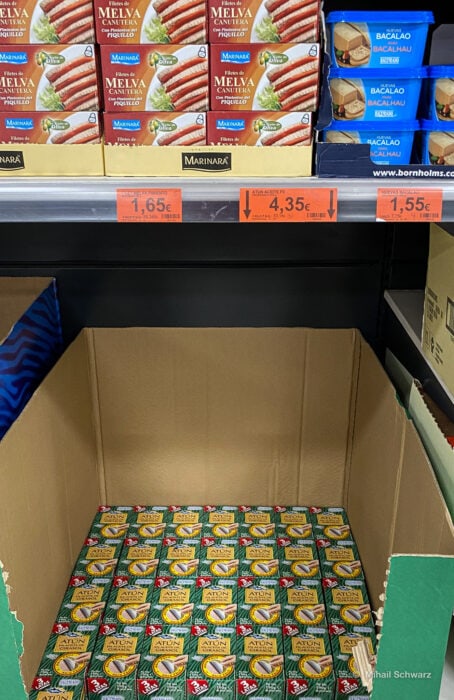
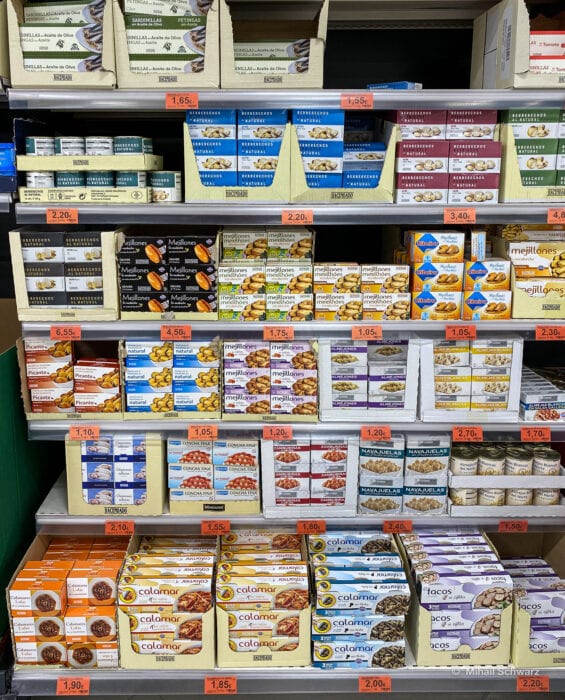
Canned Goods
I recommend the herb and ham pâtés at €1 per can.
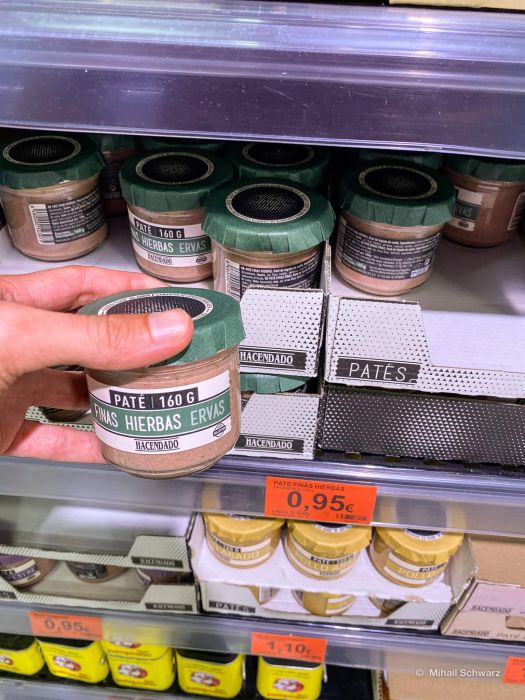
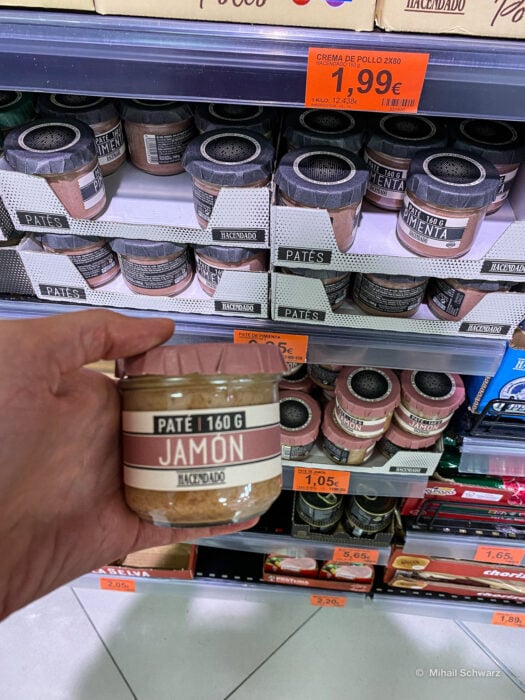
Check out the prices for other Spanish canned goods:

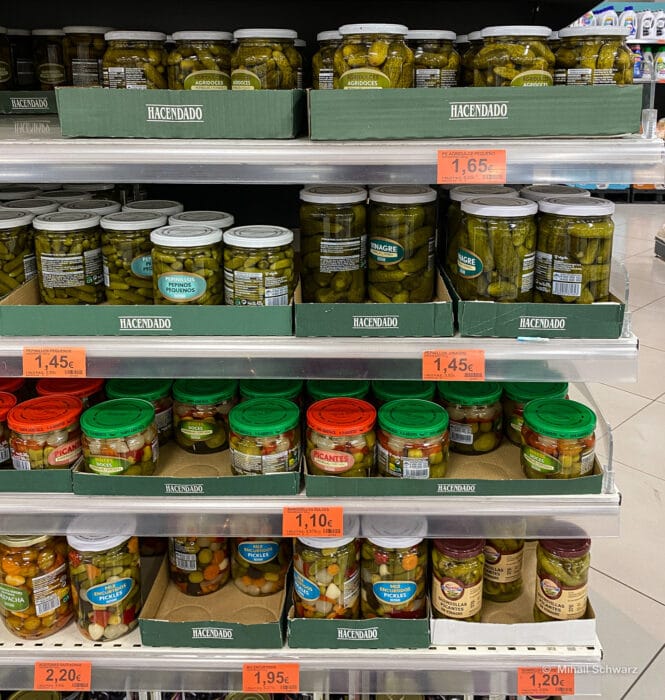
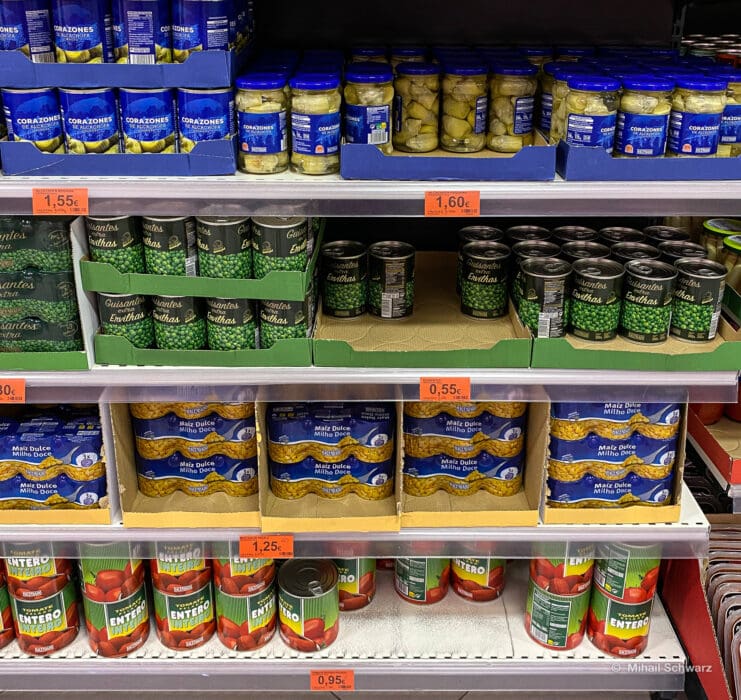

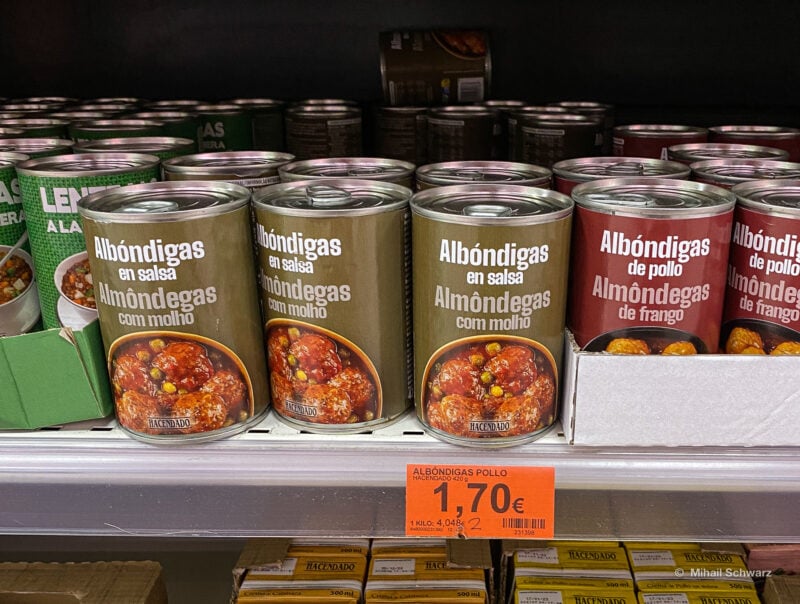
Pre-cooked Foods

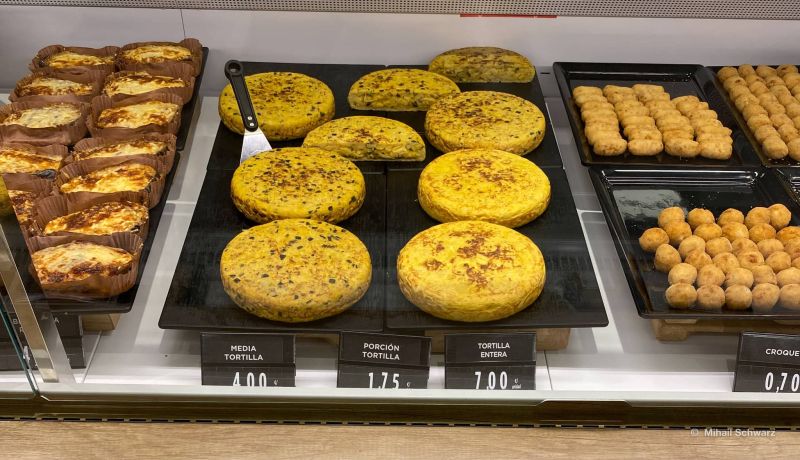
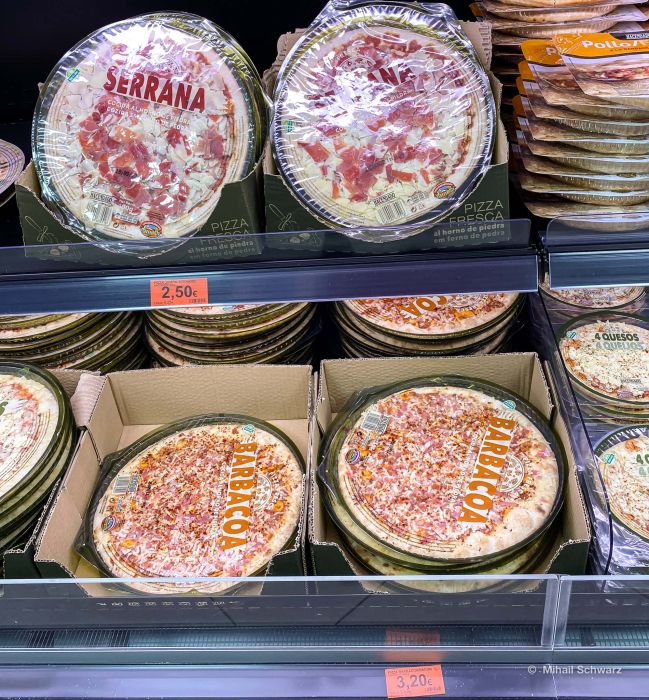
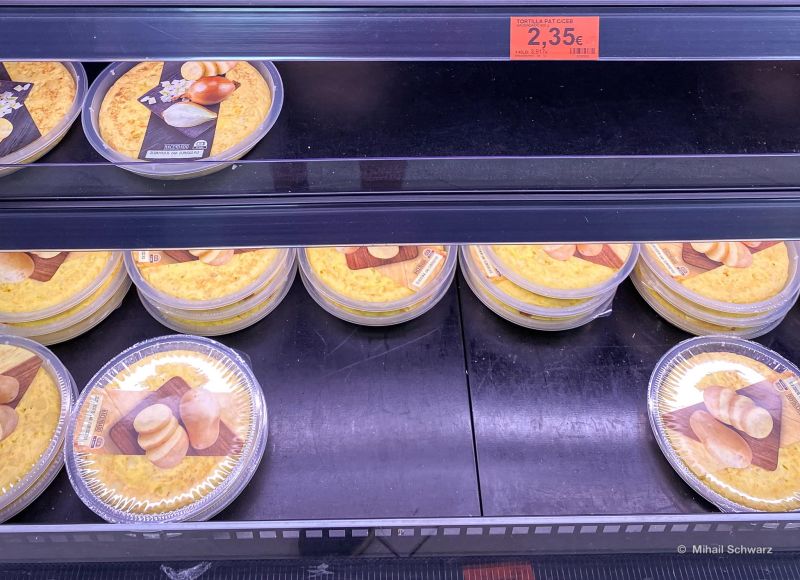
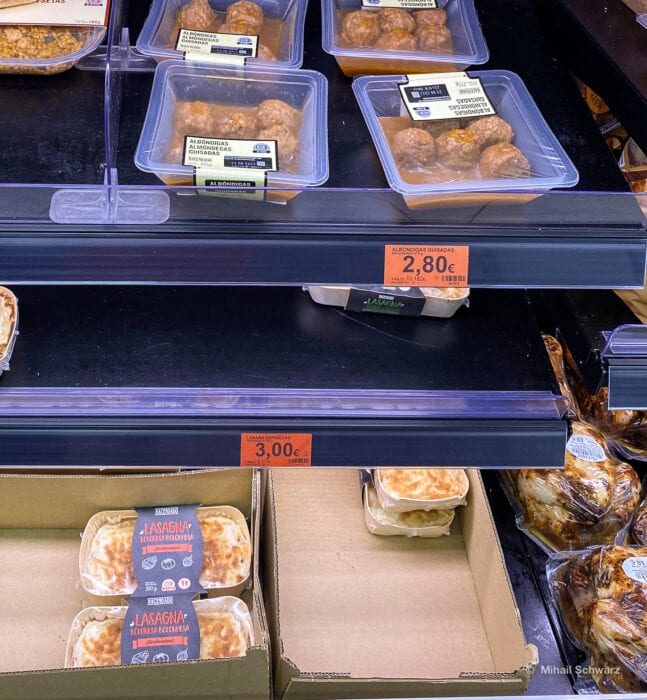
Dairy Products
Good milk from the cooler with a short shelf life costs €0.95 per liter. Ultra-pasteurized milk is €0.56.
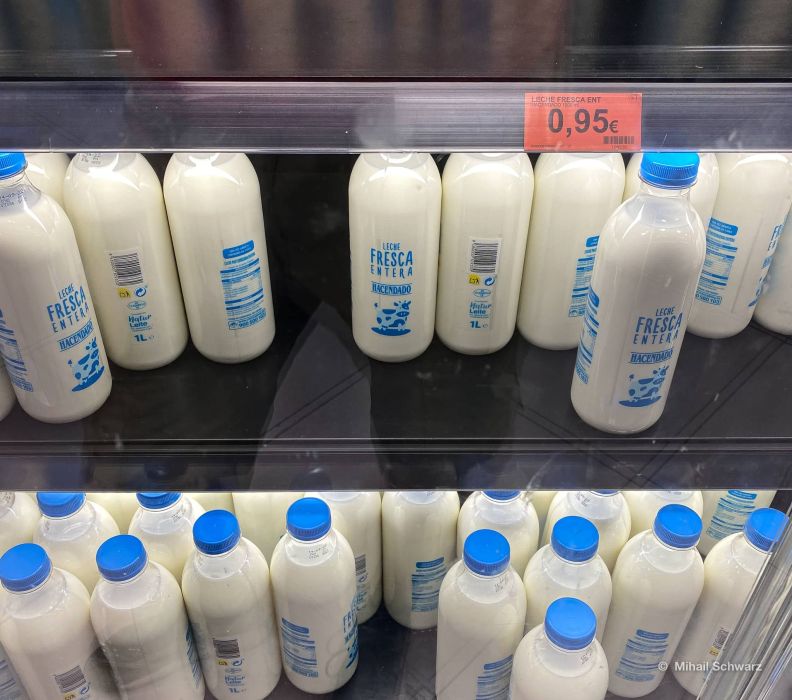
There’s also soy milk for special enthusiasts and nut-based drinks.
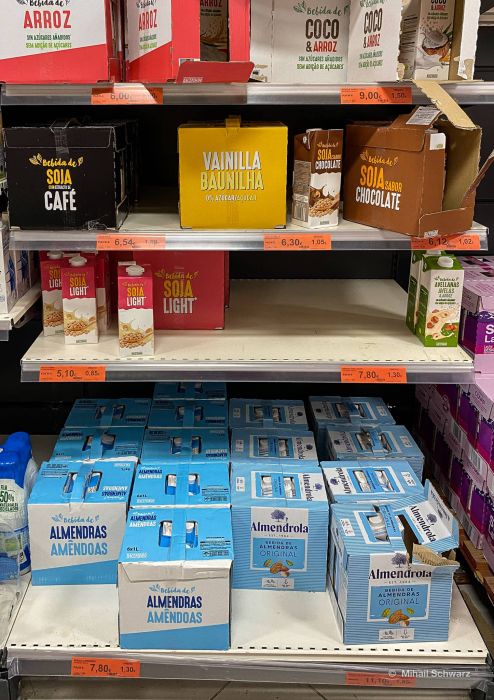
Kefir has recently appeared on the shelves.
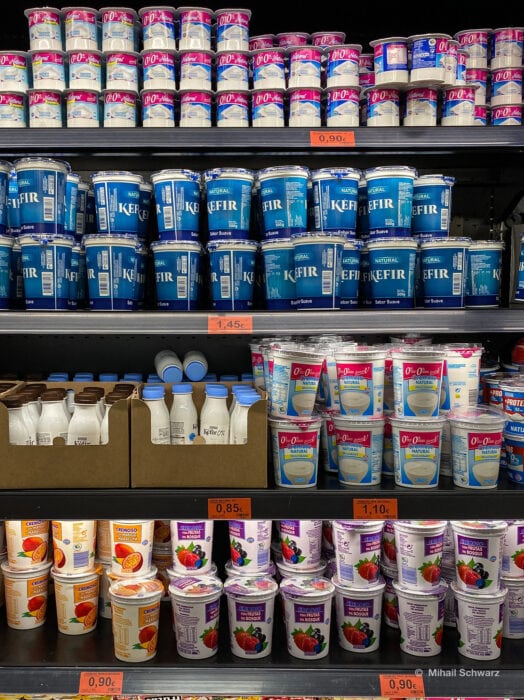
Spanish yogurts with bifidobacteria cost around €1 each.


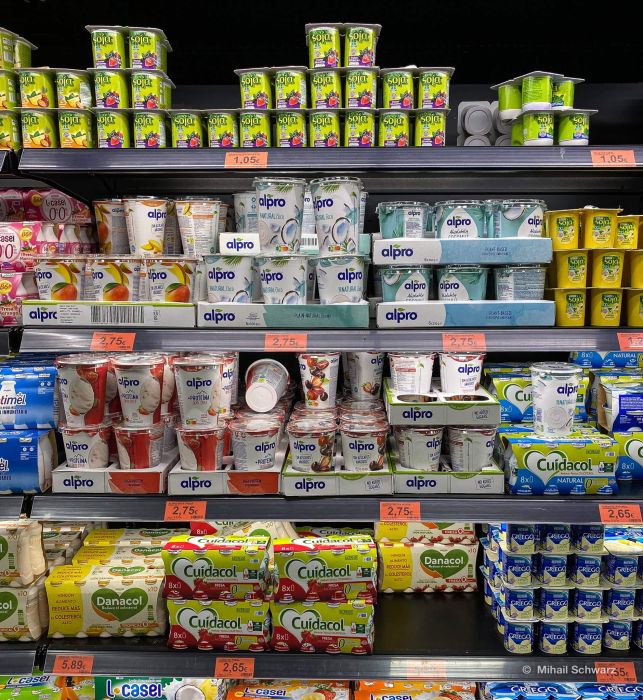
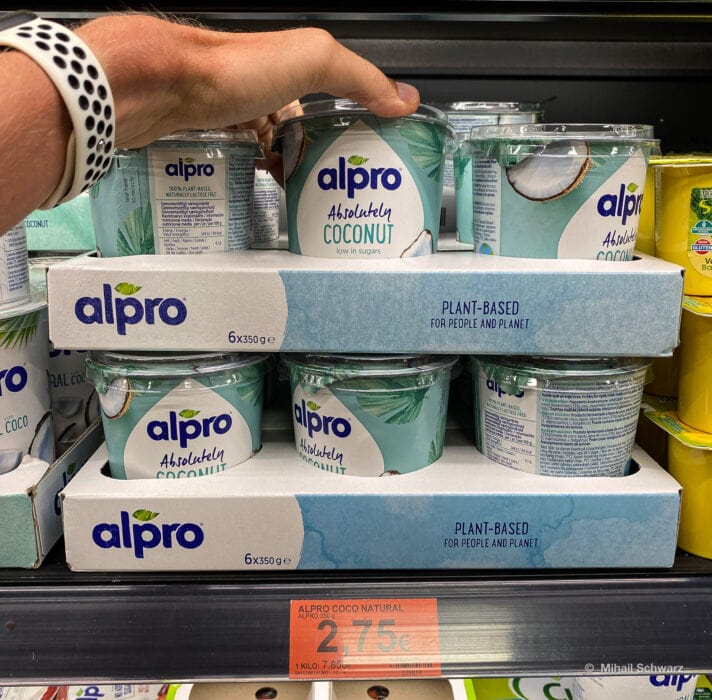
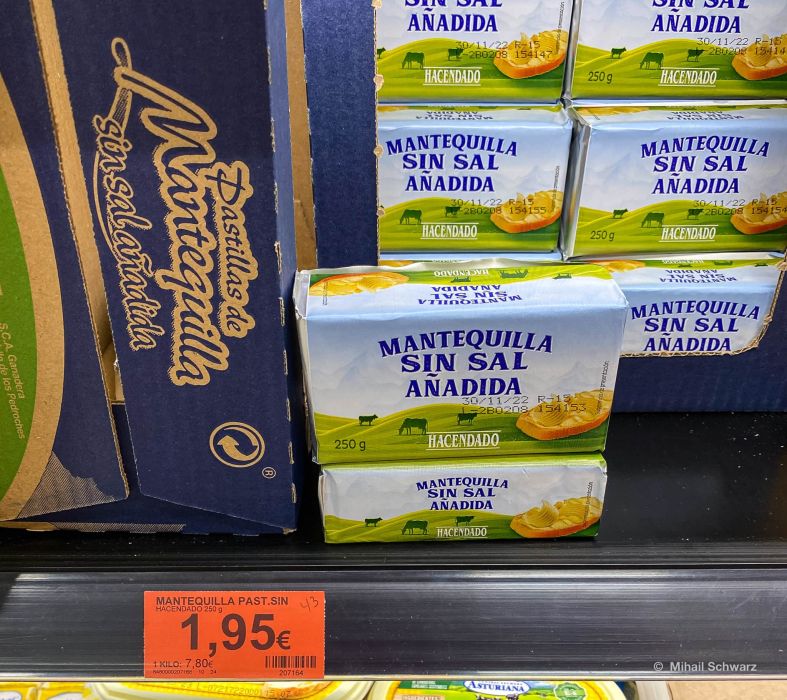
Very tasty Spanish desserts!

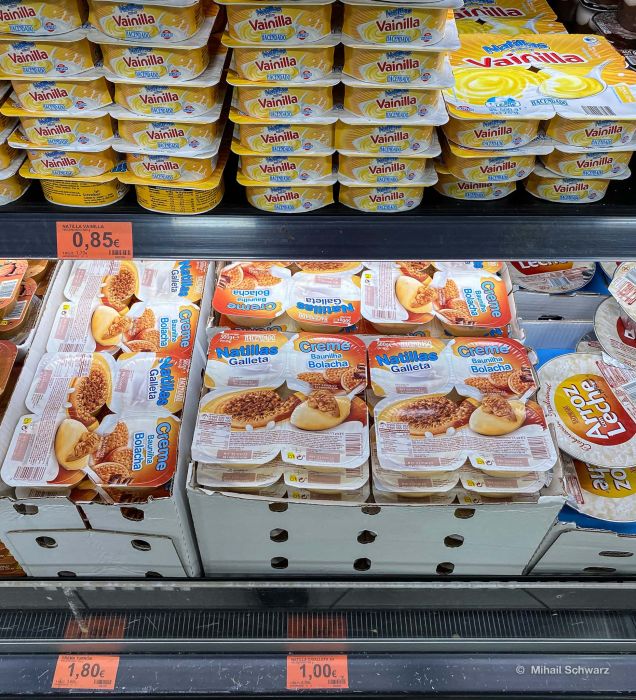
Cheese
There’s a huge variety of cheeses. I only photographed the standard types to have something to compare with. I like the hard sheep’s milk cheese.
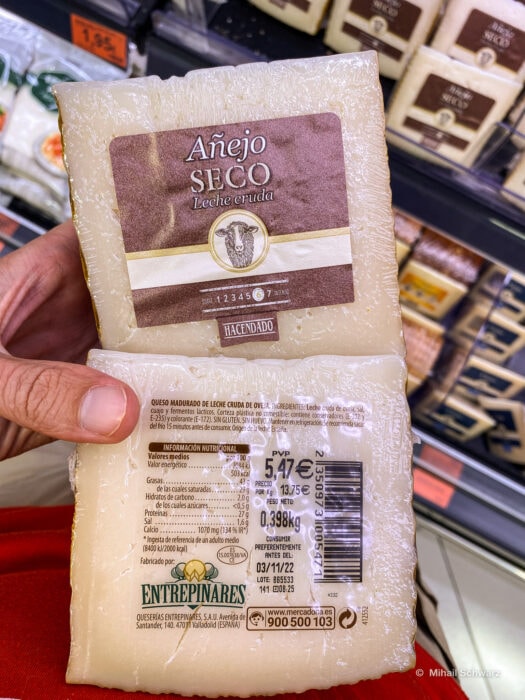
I recommend the Spanish cheeses made from three kinds of milk: sheep, cow, and goat.
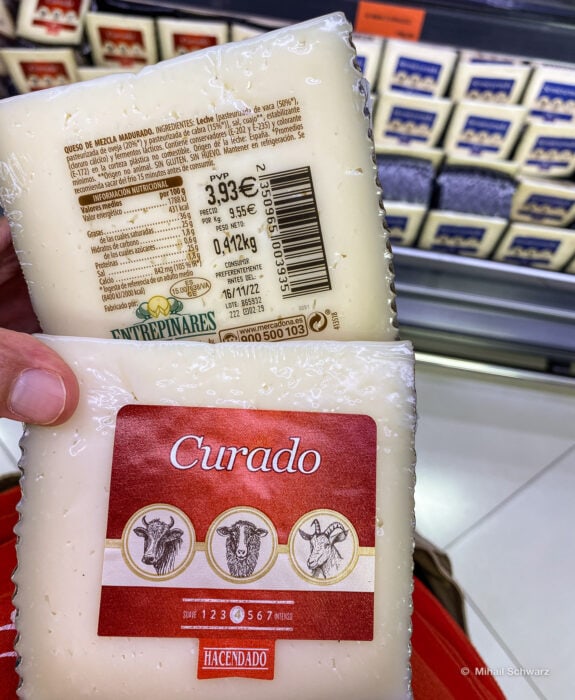
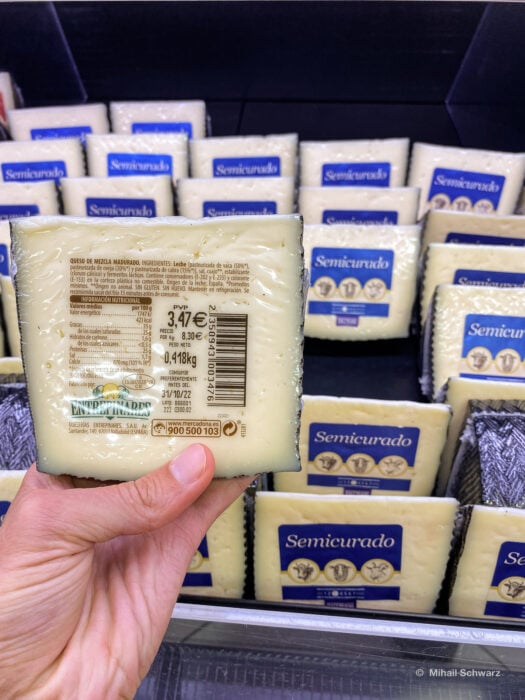
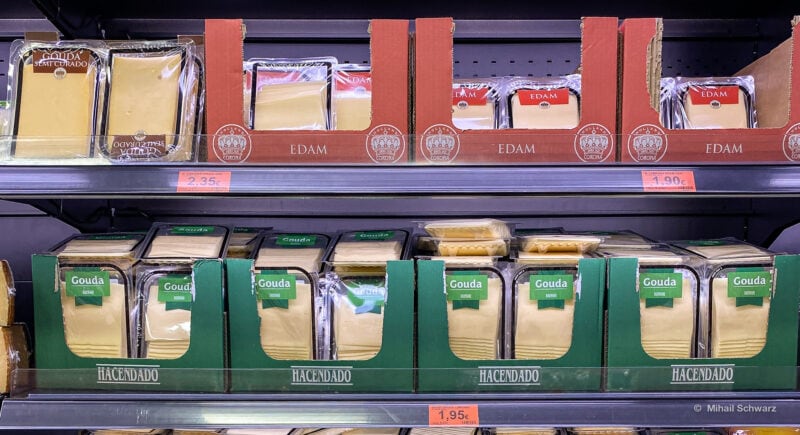
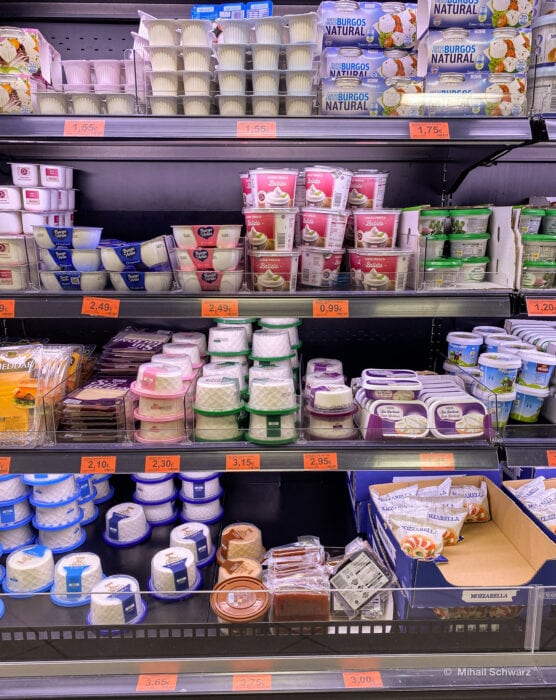

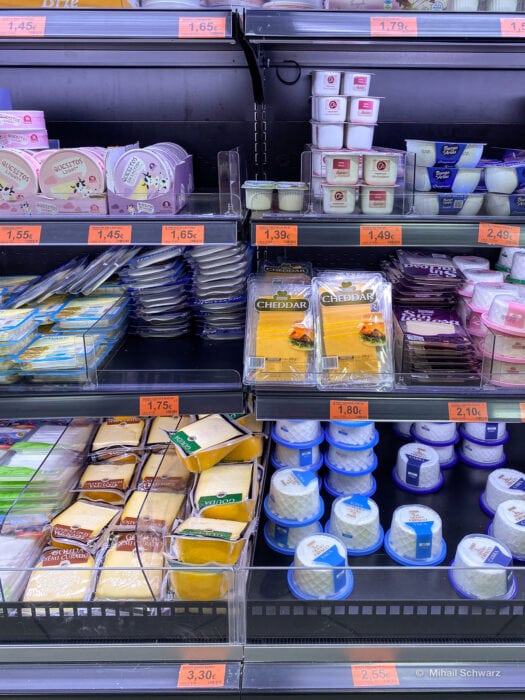
Jam
For jam, we get the inexpensive Spanish peach, apricot, and quince varieties for €1.5–2.5 per jar at Lidl. I make sure the jar shows fruit fiber, otherwise it’ll just be flavorless jelly.
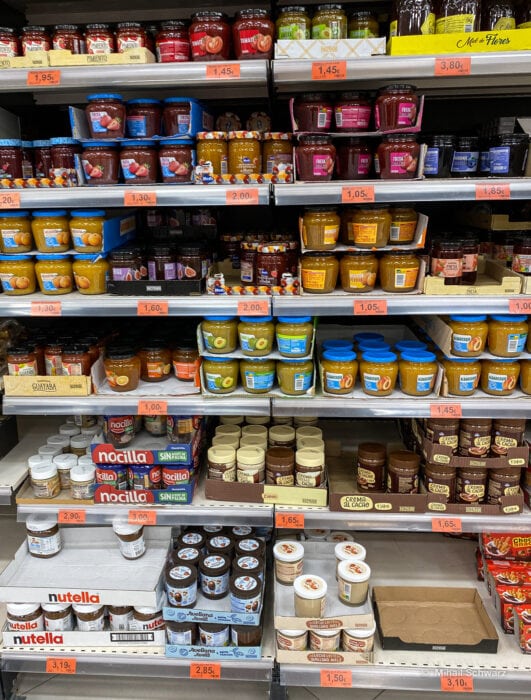

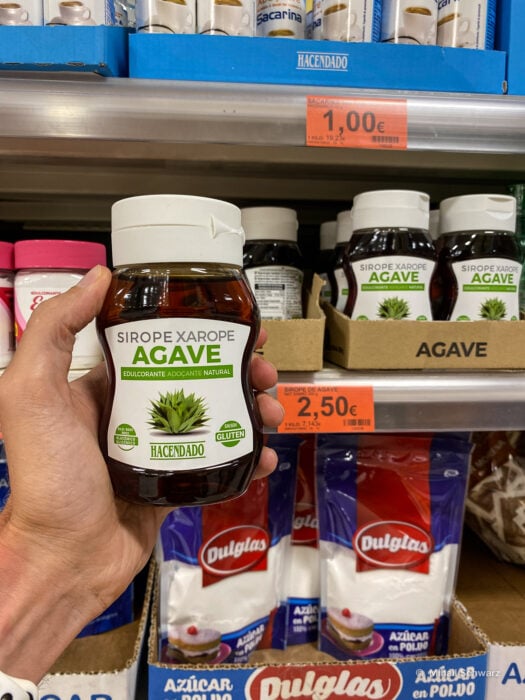
Tea and Coffee
Tea is mostly herbal, so bring your own from Russia ;-)
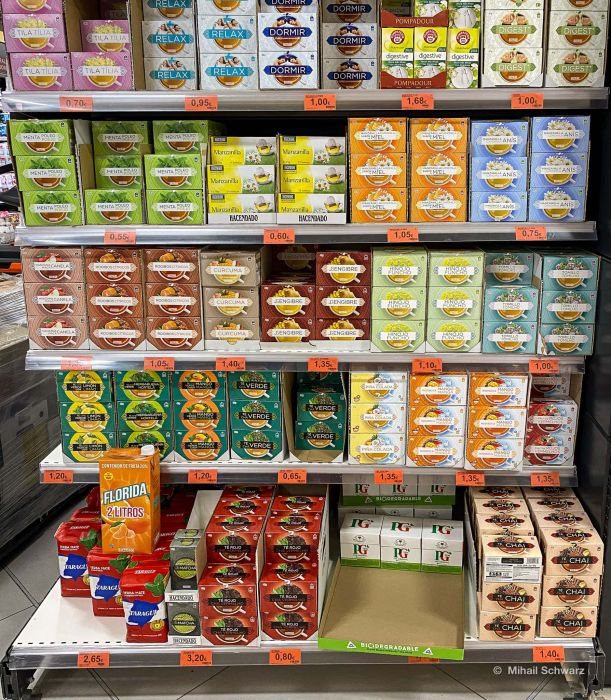
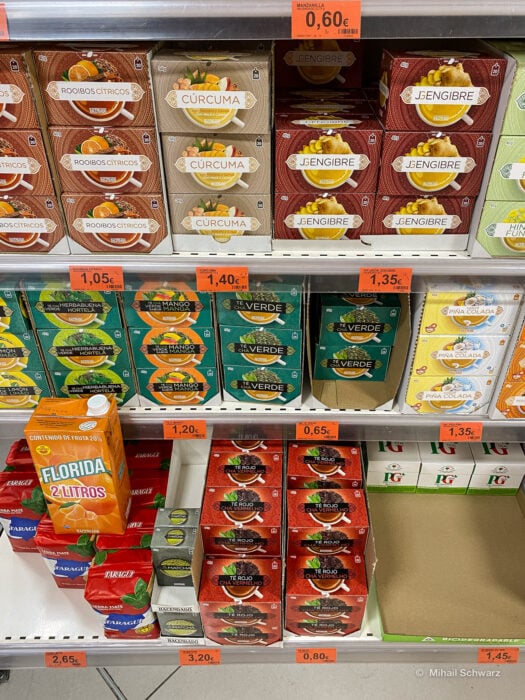
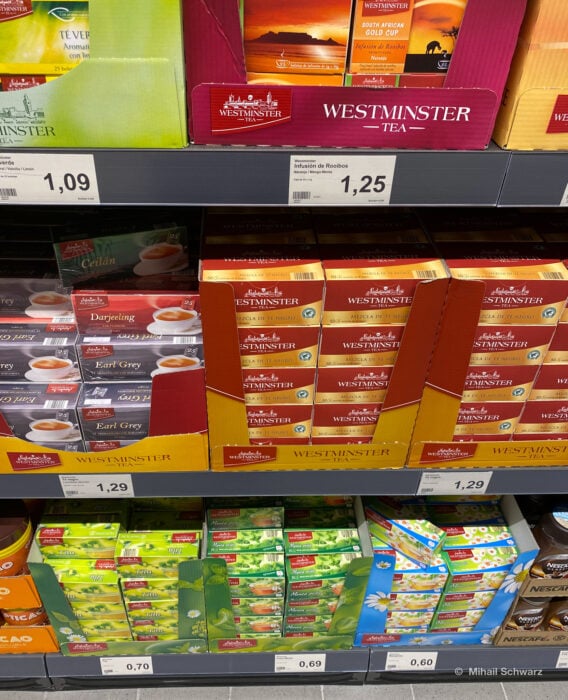
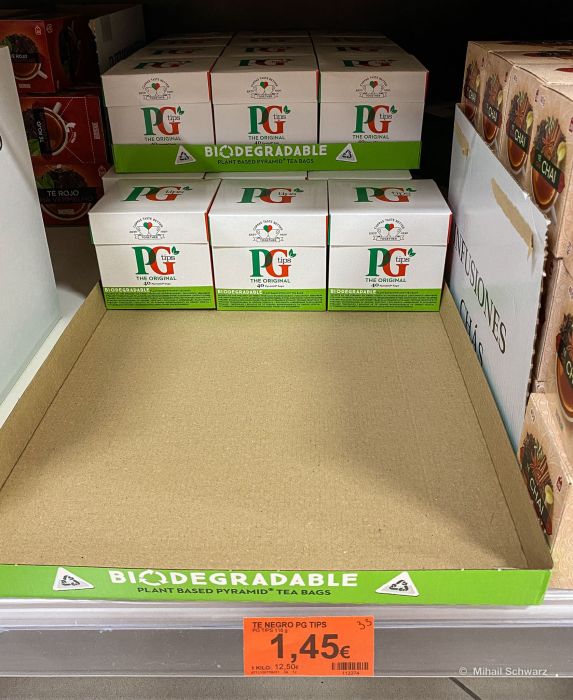
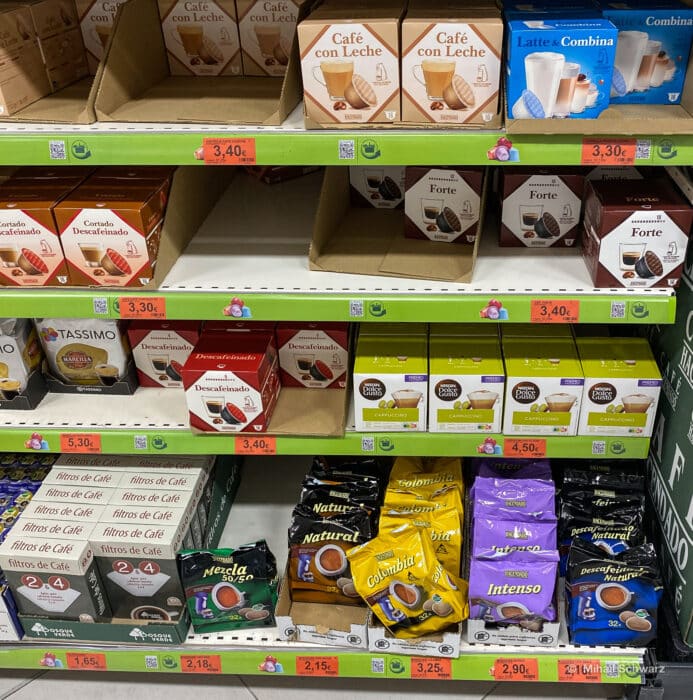
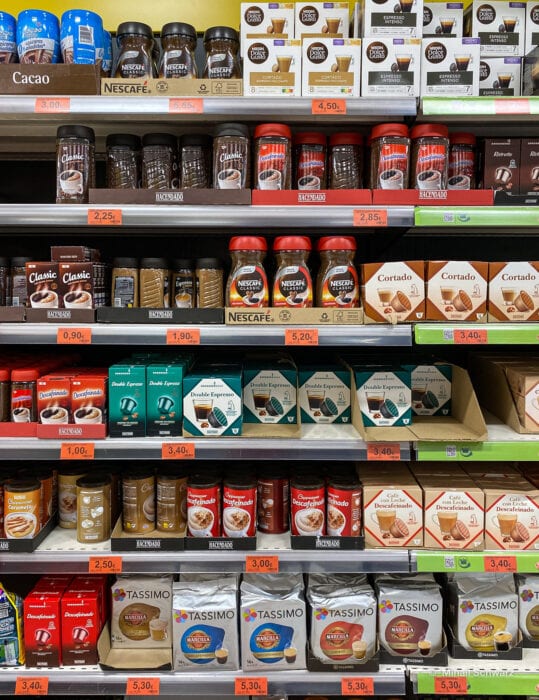
Pasta and Grains
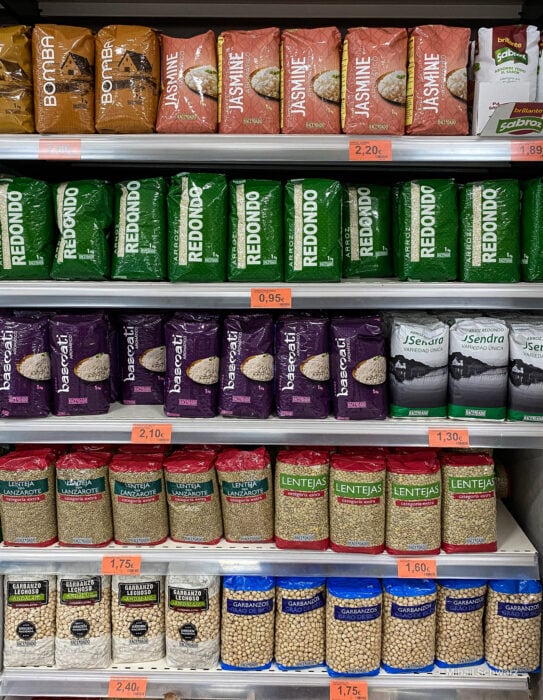
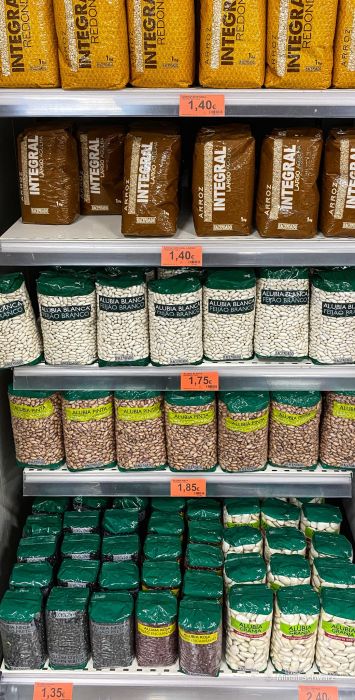
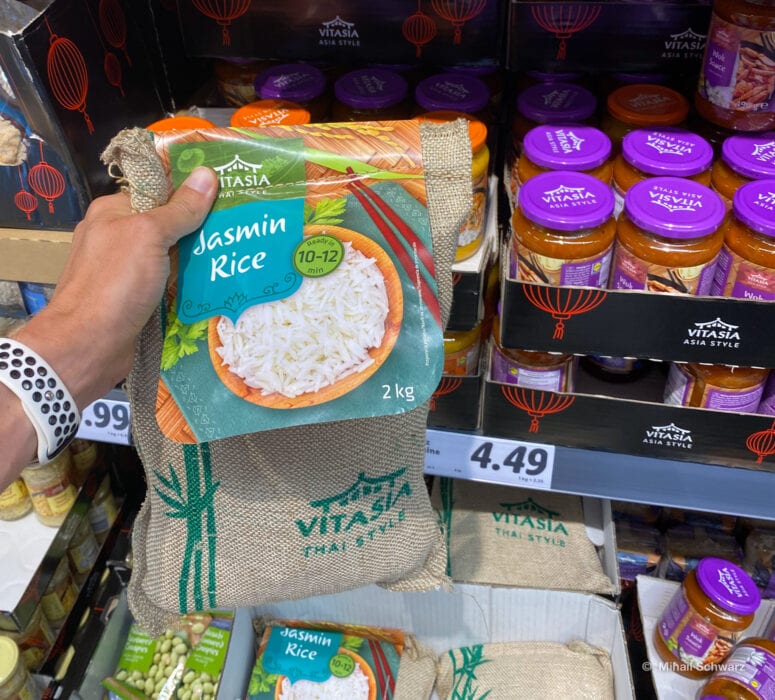
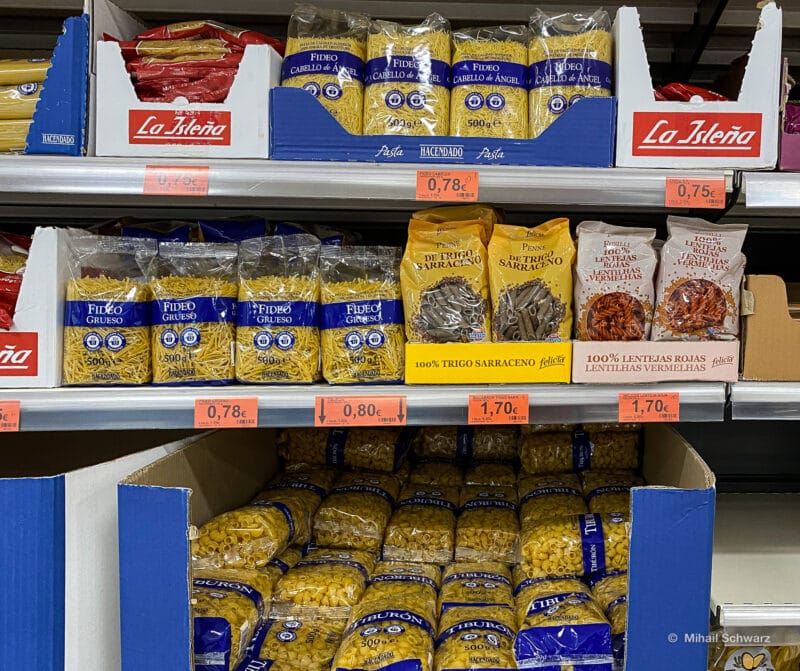
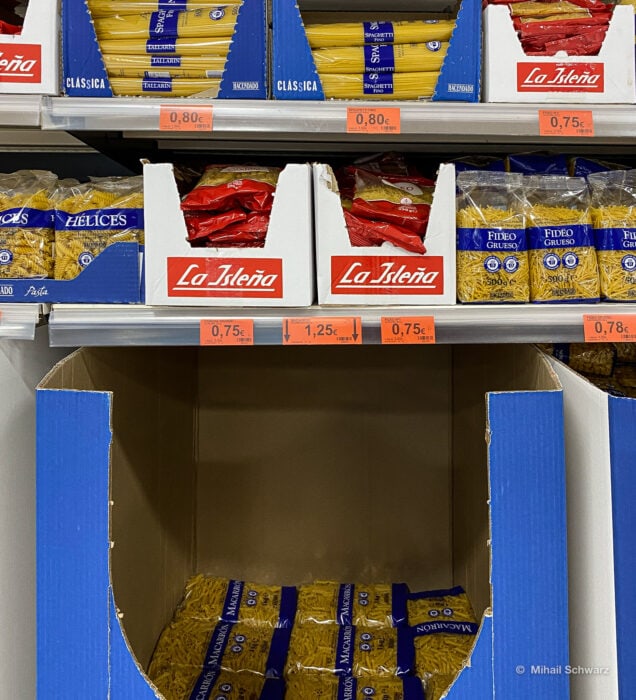
Vegetable Oil
I don’t see much difference between olive oil in glass and plastic bottles for salads. We often get Coosur Pisual with a nice bitterness for €5. By the way, on Tenerife this oil cost €4.
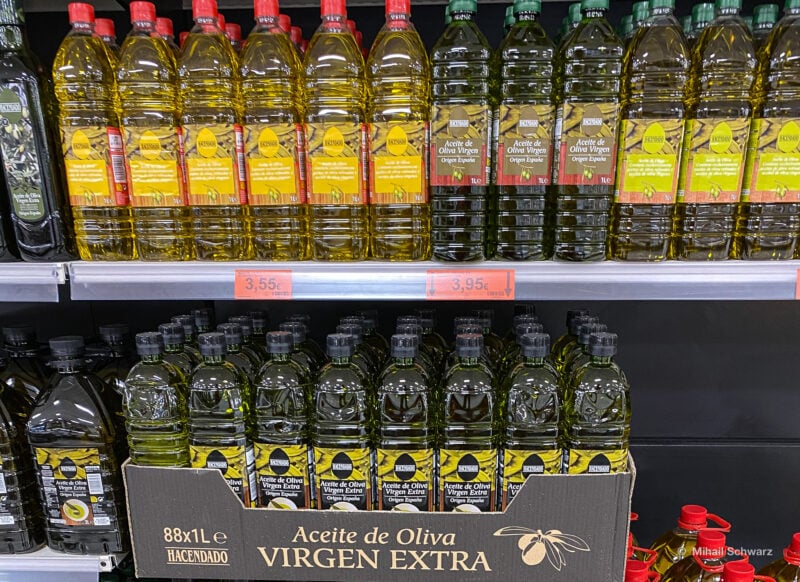
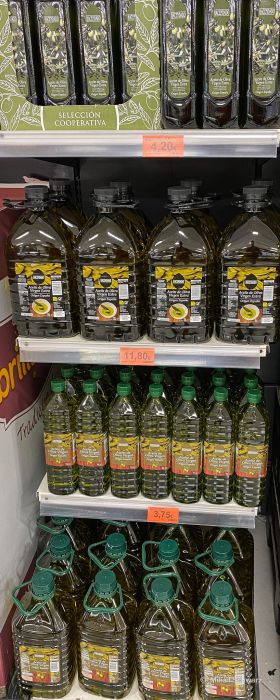
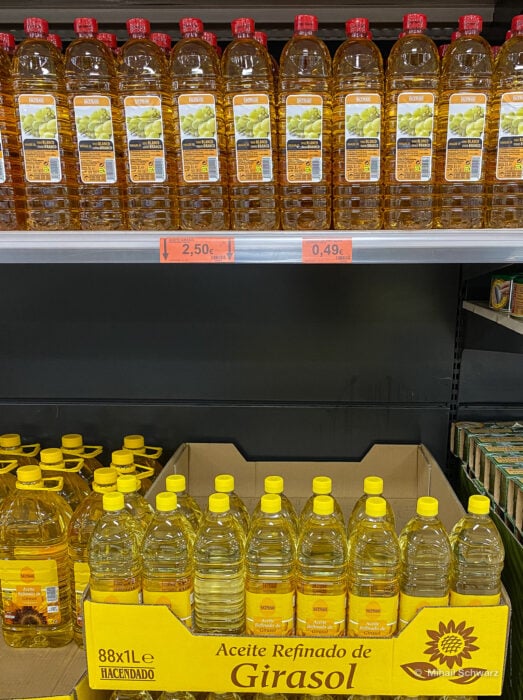
Beer
Spanish supermarket beer is so-so. Without much flavor or aftertaste — just malted water. Of the passable brands, the only one I like is Alhambra Classic, but it’s better to get a German wheat beer like Franziskaner for €0.92. Check any beer’s expiration date, I try not to buy any older than 1-2 months. We only drink beer for special occasions, so we choose carefully.
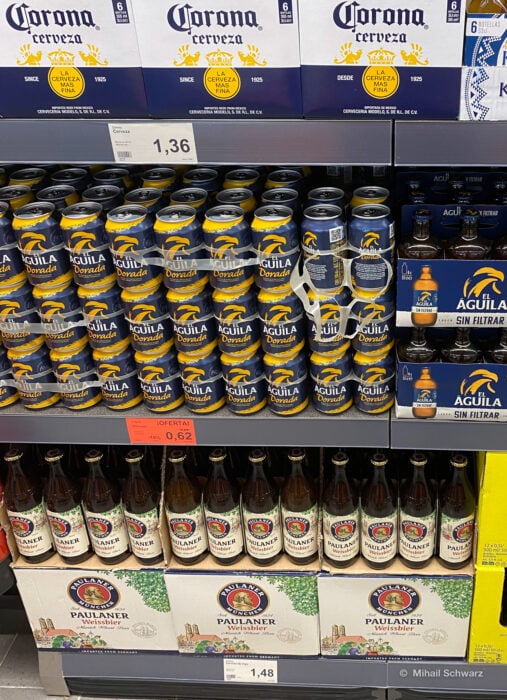
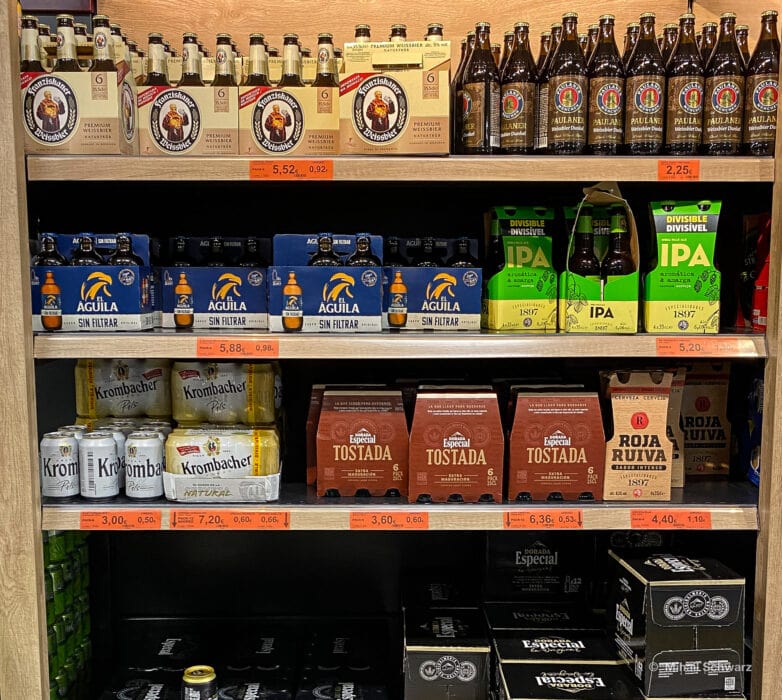

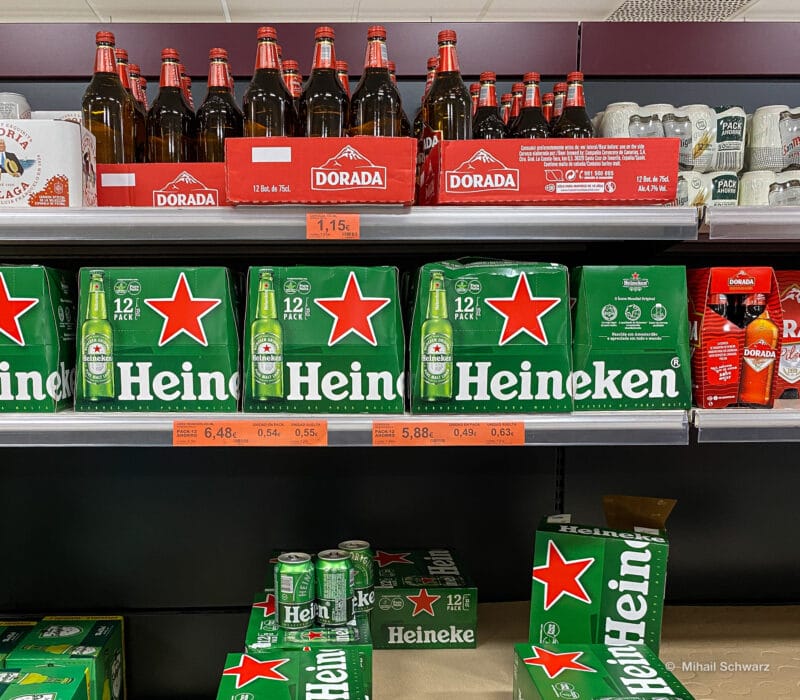
Wine
Everyone knows about Spanish wines. Bottle prices start from €2 in the store.
Not many are familiar with Canarian wines though. They are produced in small quantities and hardly exported at all. The fertile volcanic soil gives the drink a special character. I recommend trying it!
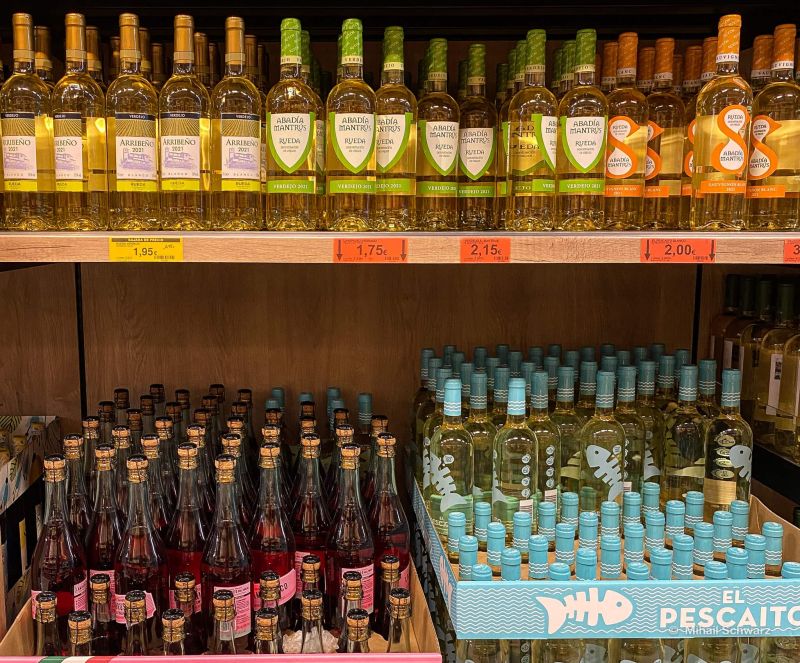
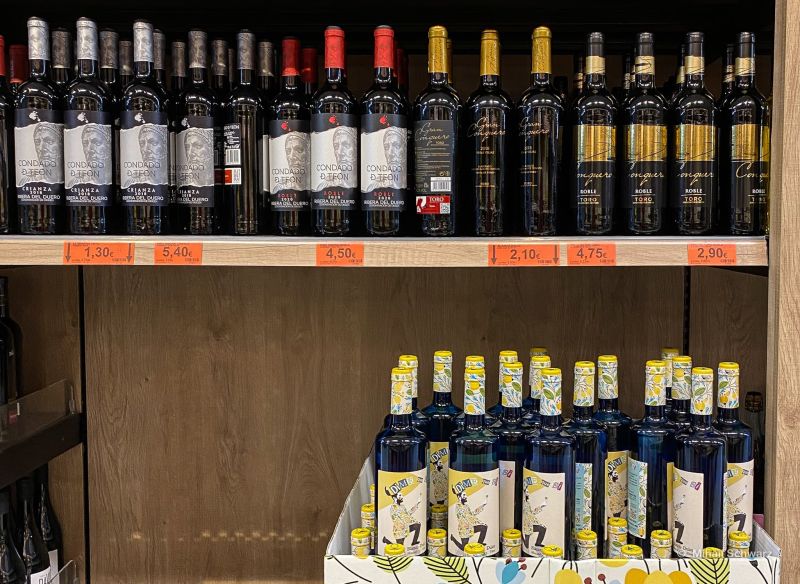
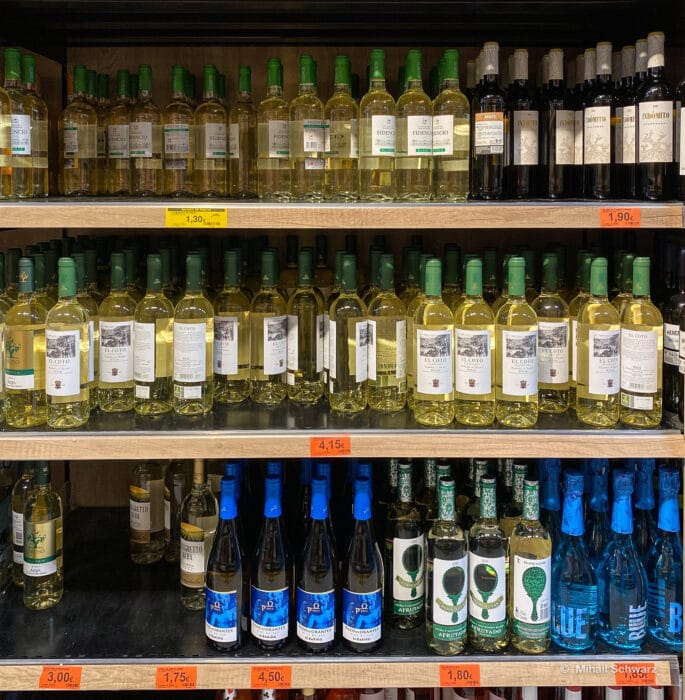
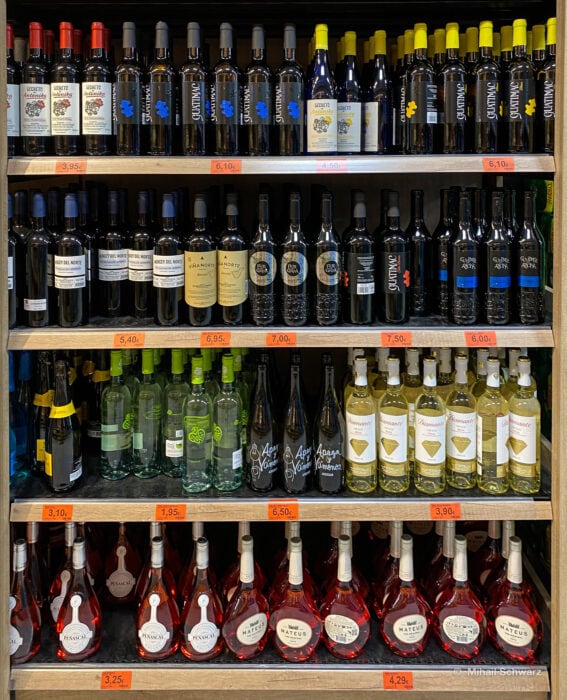
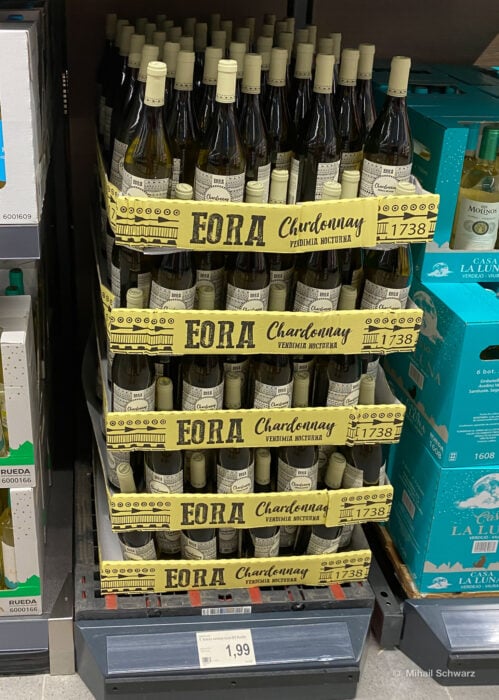
Snacks
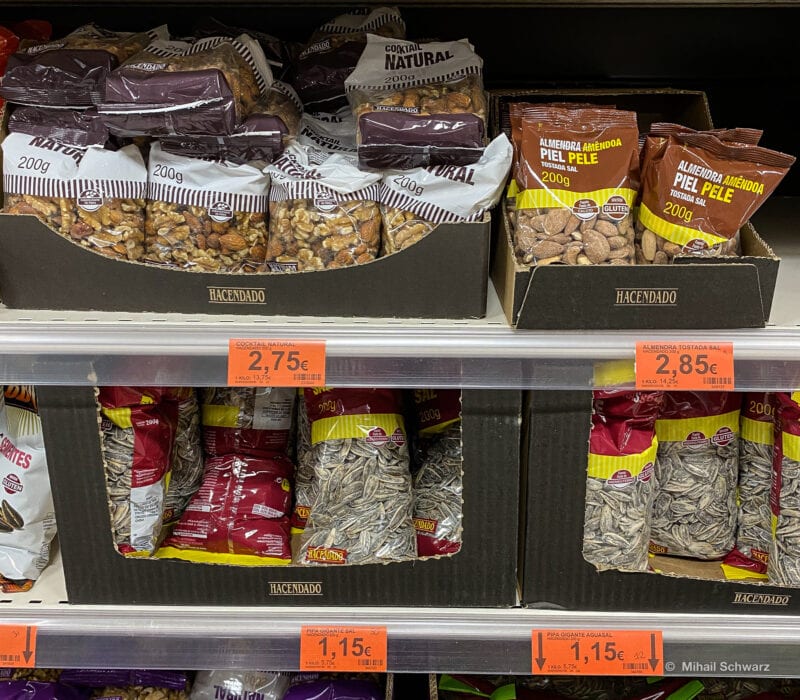
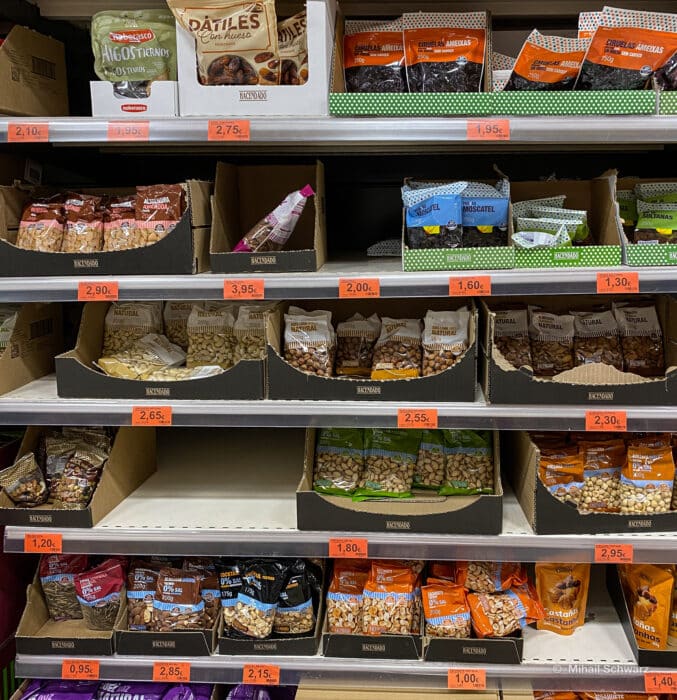
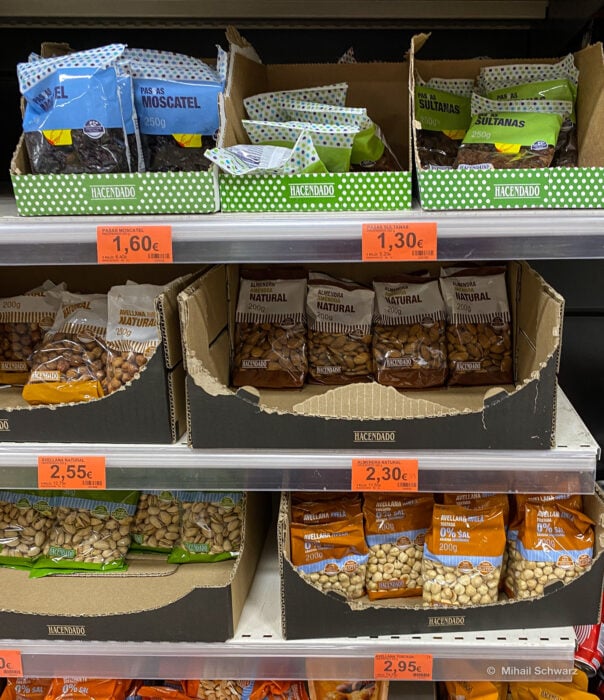
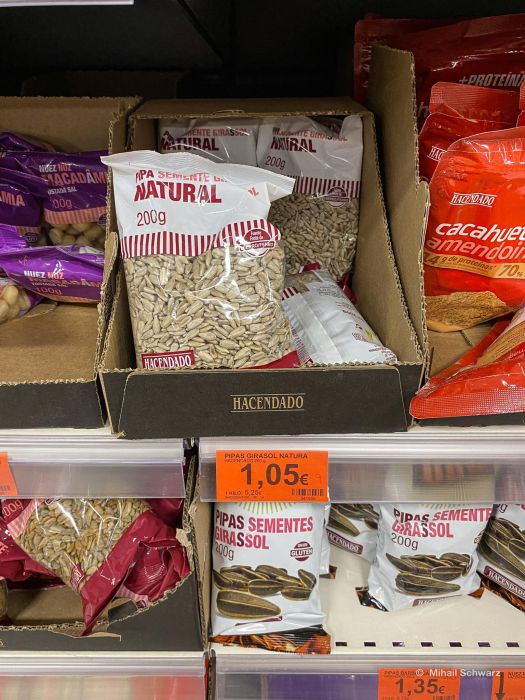
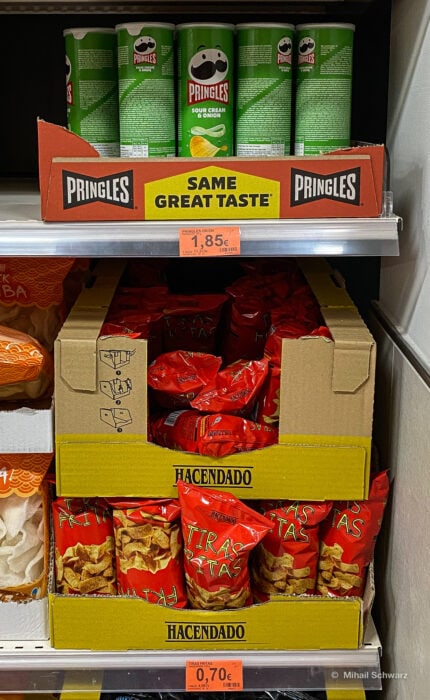

Flour, Sugar, and Eggs

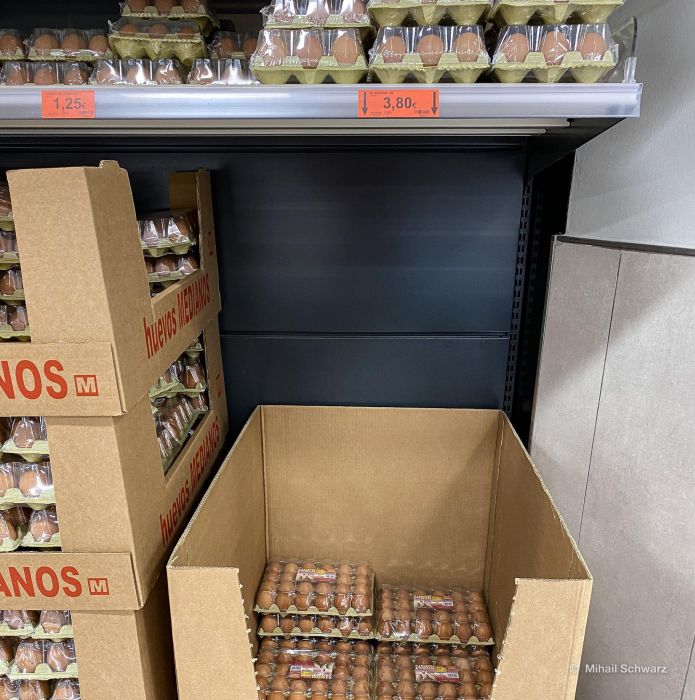
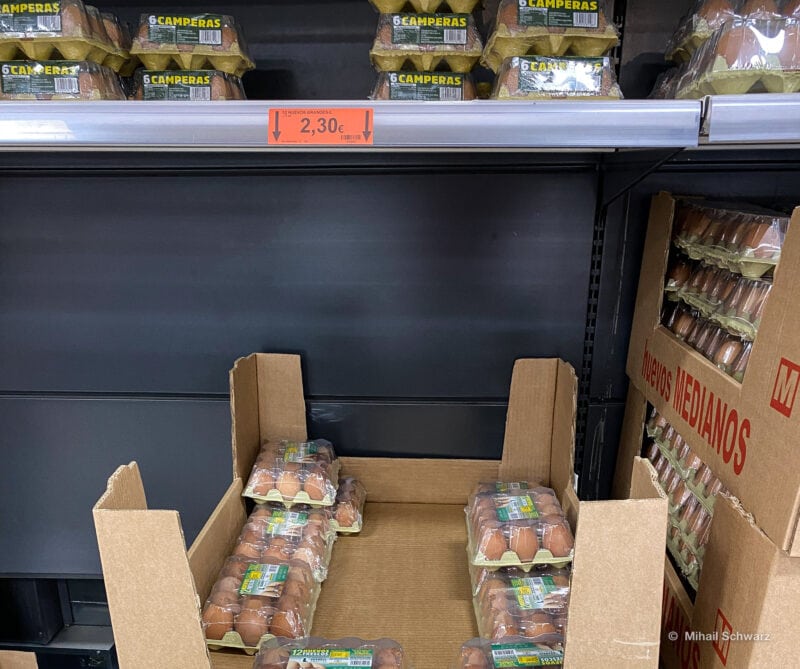
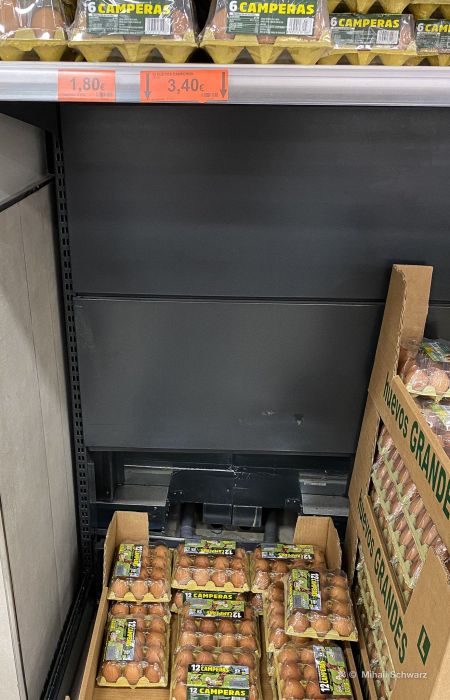
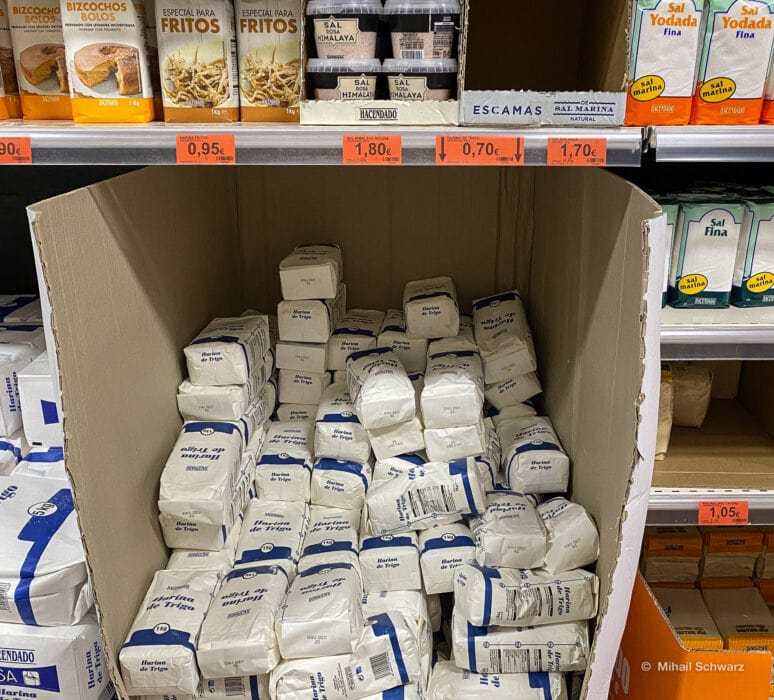
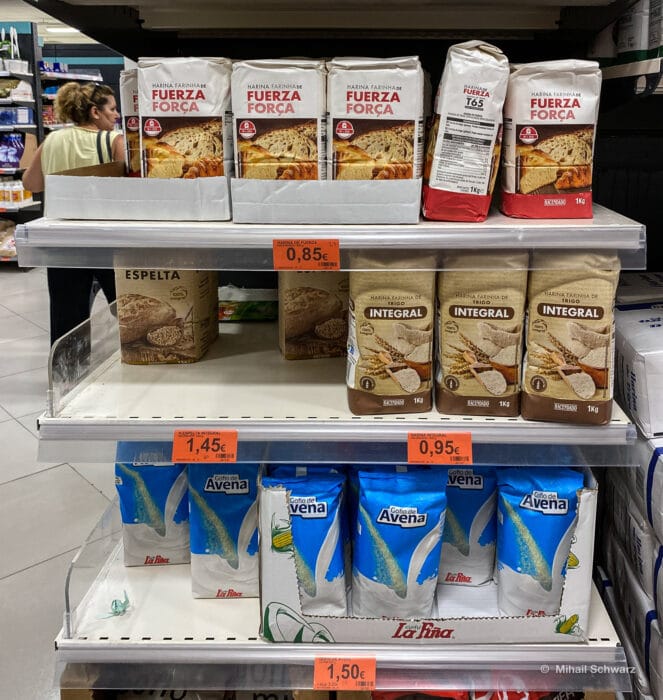
Vegan Products
There are vegan sections in the stores.
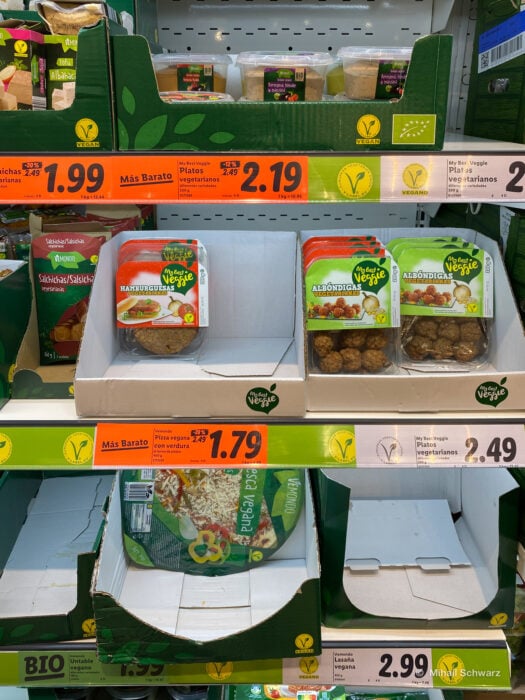
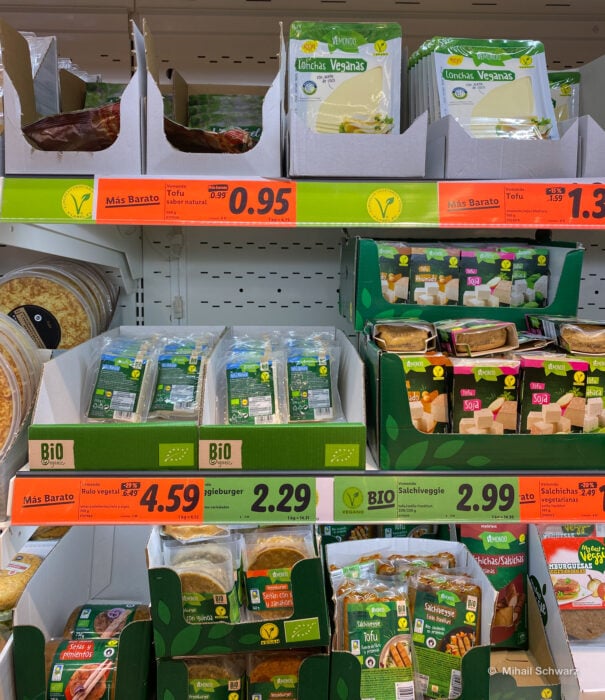
Household Items

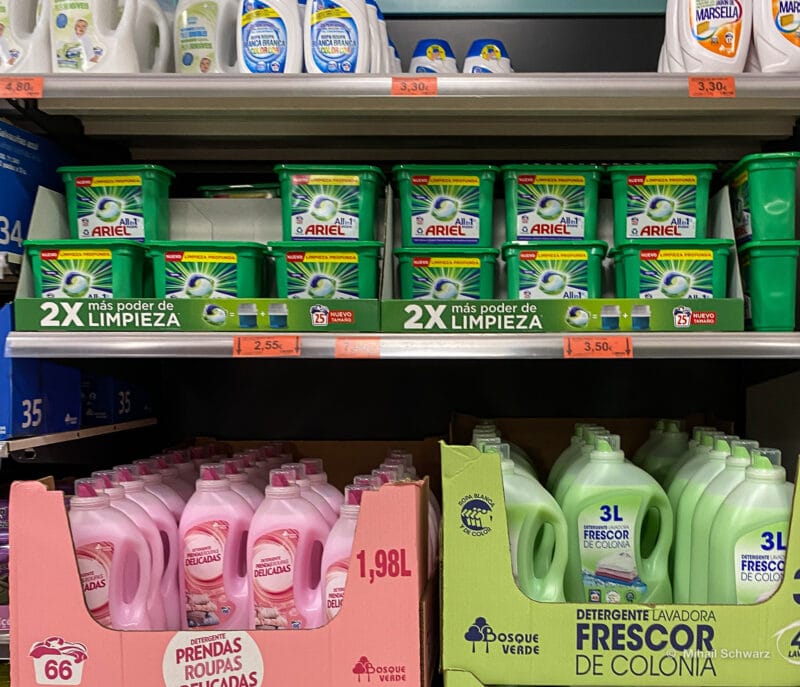
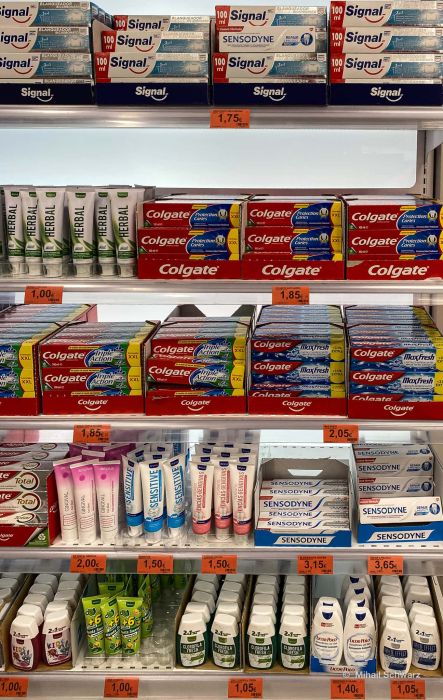
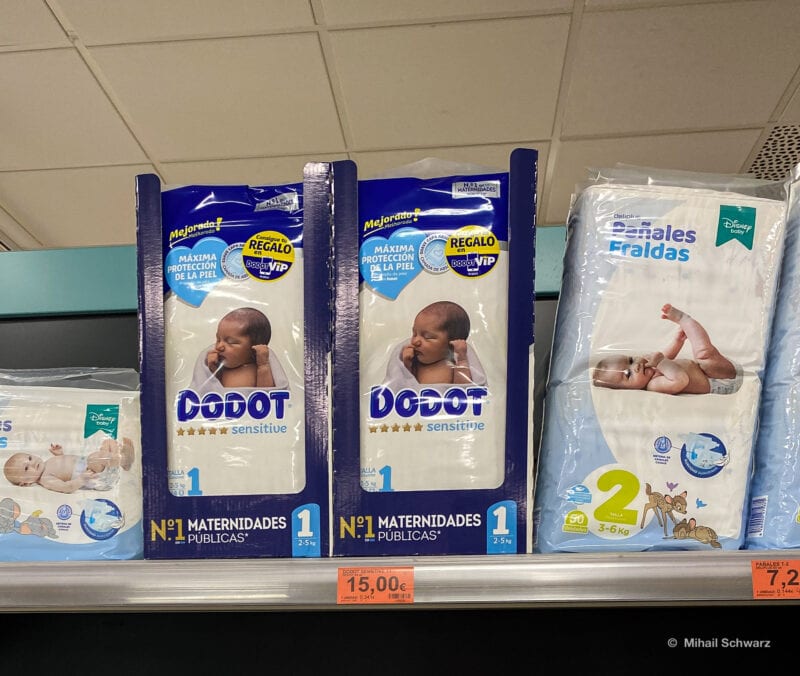
Overall, I like Spanish prices. Some items are even cheaper than at home. I especially want to highlight the excellent quality of Spanish fruits and vegetables — they are free of GMOs and pesticides. The Spanish take pride in their reputation.
Fresh Produce from a Farm
If you want to buy fresh fruits and veggies at a bargain, head to the Finca la Caldera farm in Costa Adeje.
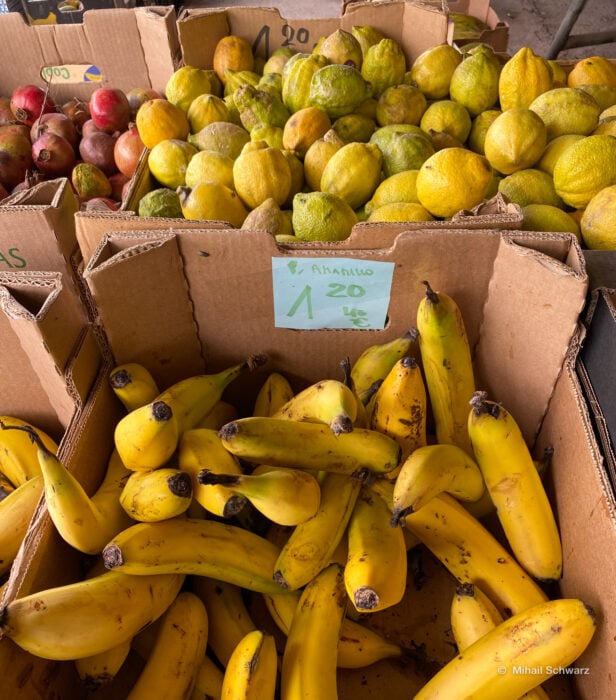
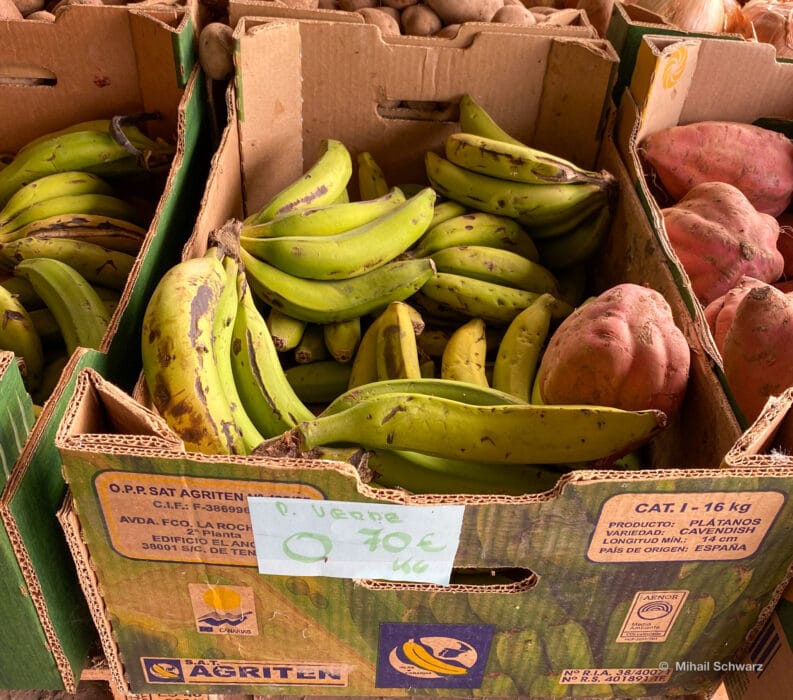
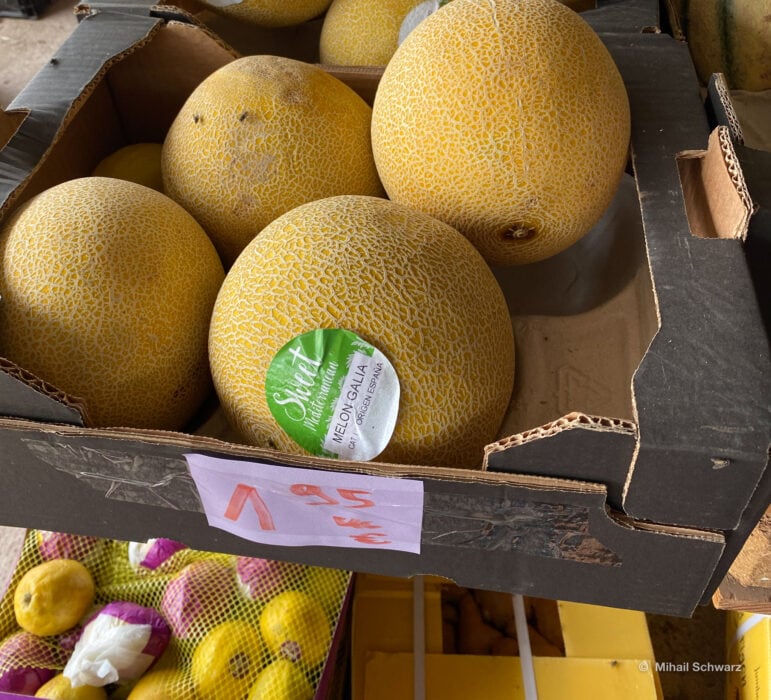
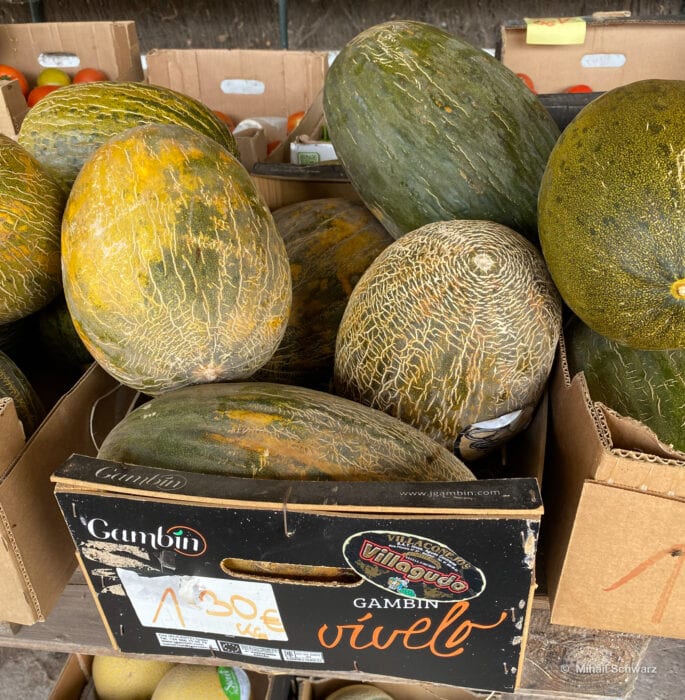
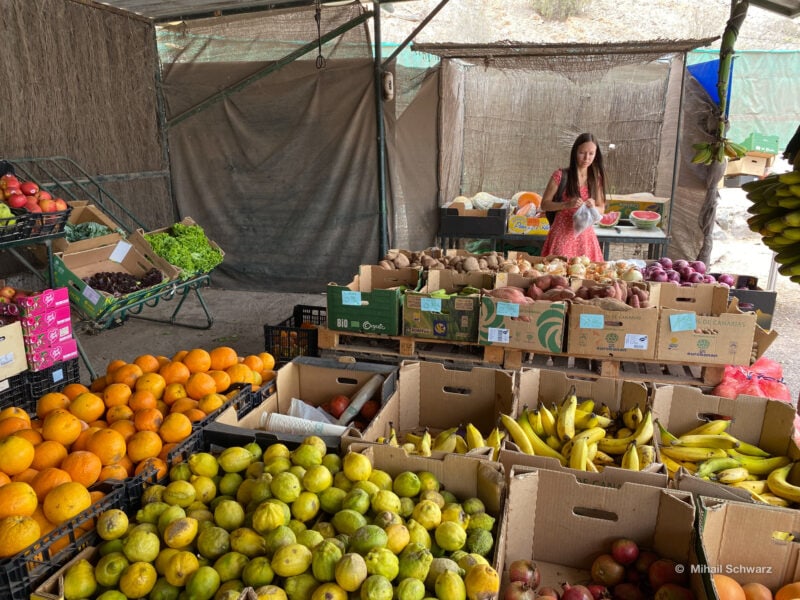
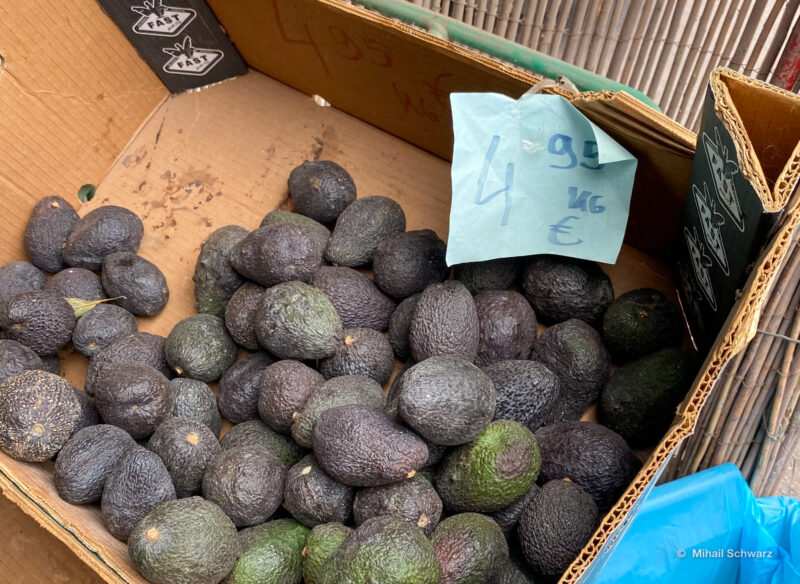
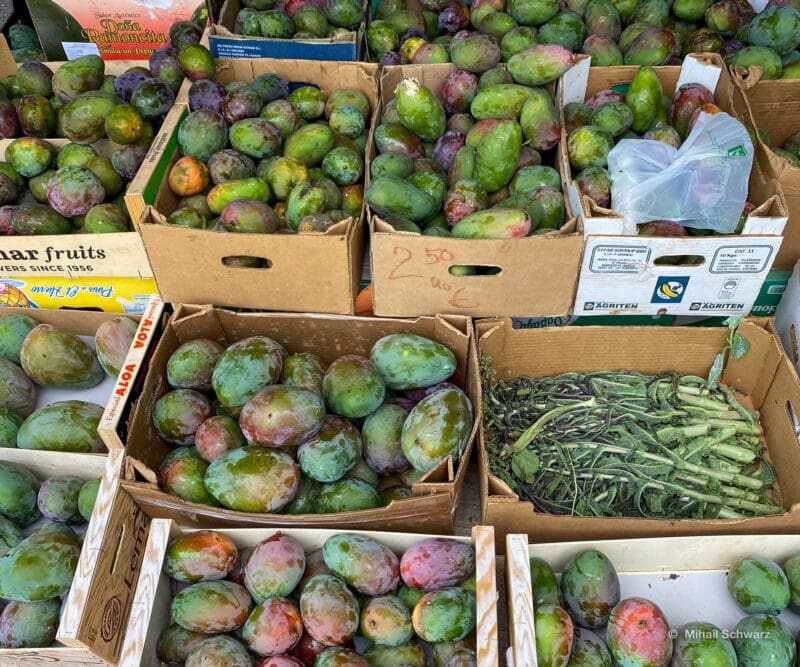
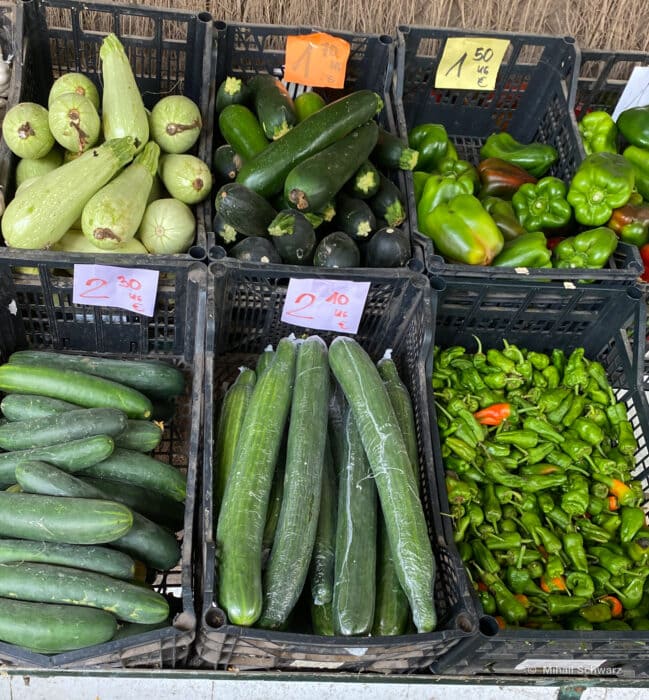

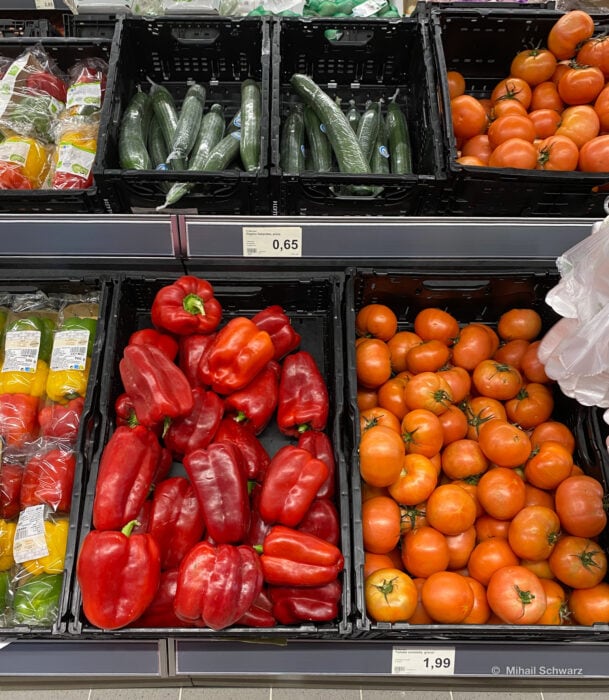
You’ll have a great time if you happen to hit one of the village farmers’ markets and buy fruits, veggies, cheese, and sausages straight from the producers. They won’t compare to the supermarket goods.
Please let me know in the comments what you usually buy at Spanish supermarkets.



